Back
Related categories
Found 266 Results
-
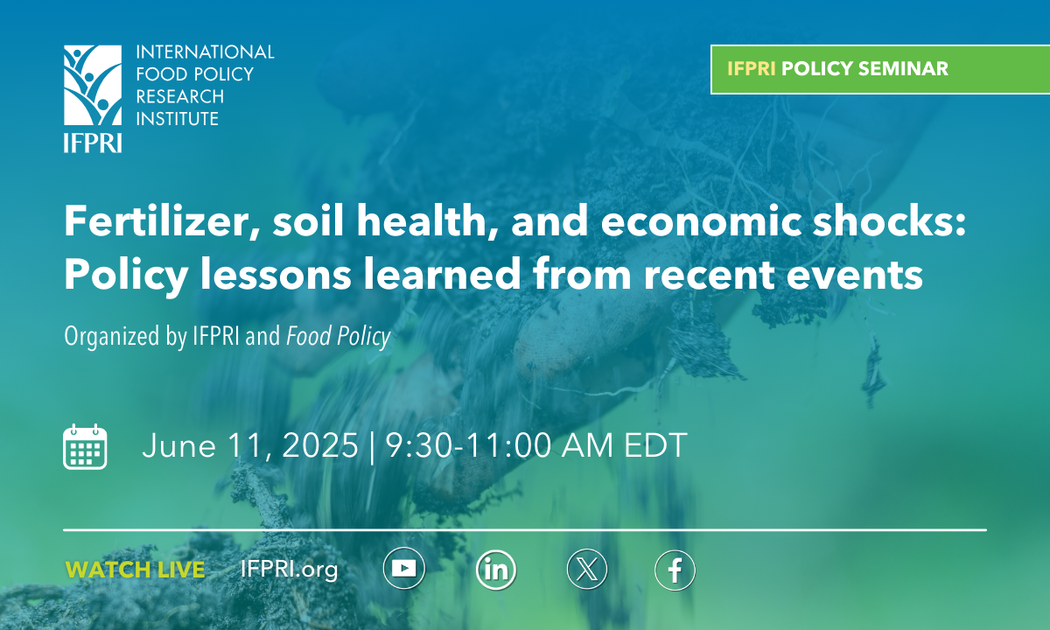
Fertilizer, soil health, and economic shocks: Policy lessons learned from recent events
Organized by IFPRI and Food Policy
Join us for a discussion of key findings from a recent special issue of Food Policy exploring the complex interactions between fertilizer use, soil health management, and economic shocks in various agricultural systems. Governments around the world have long implemented policies to enhance agricultural productivity through inorganic fertilizer application and soil management, yet recent global […]
-
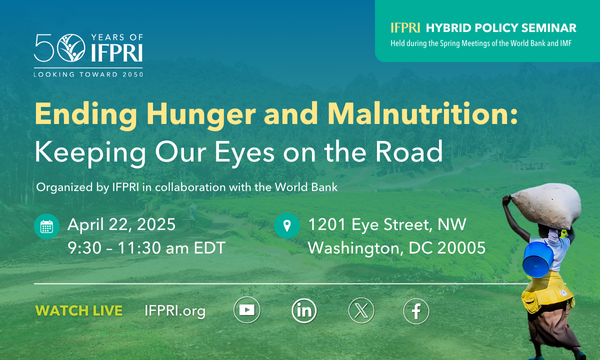
Ending Hunger and Malnutrition: Keeping Our Eyes on the Road
Organized by IFPRI in collaboration with the World Bank
While global agricultural commodity prices have come down from the high levels seen in recent years, the world remains far off track in meeting the SDG2 of ending hunger and malnutrition by 2030. Last year, close to 300 million people faced food crisis while the number of people on the cusp of famine doubled. Efforts […]
-
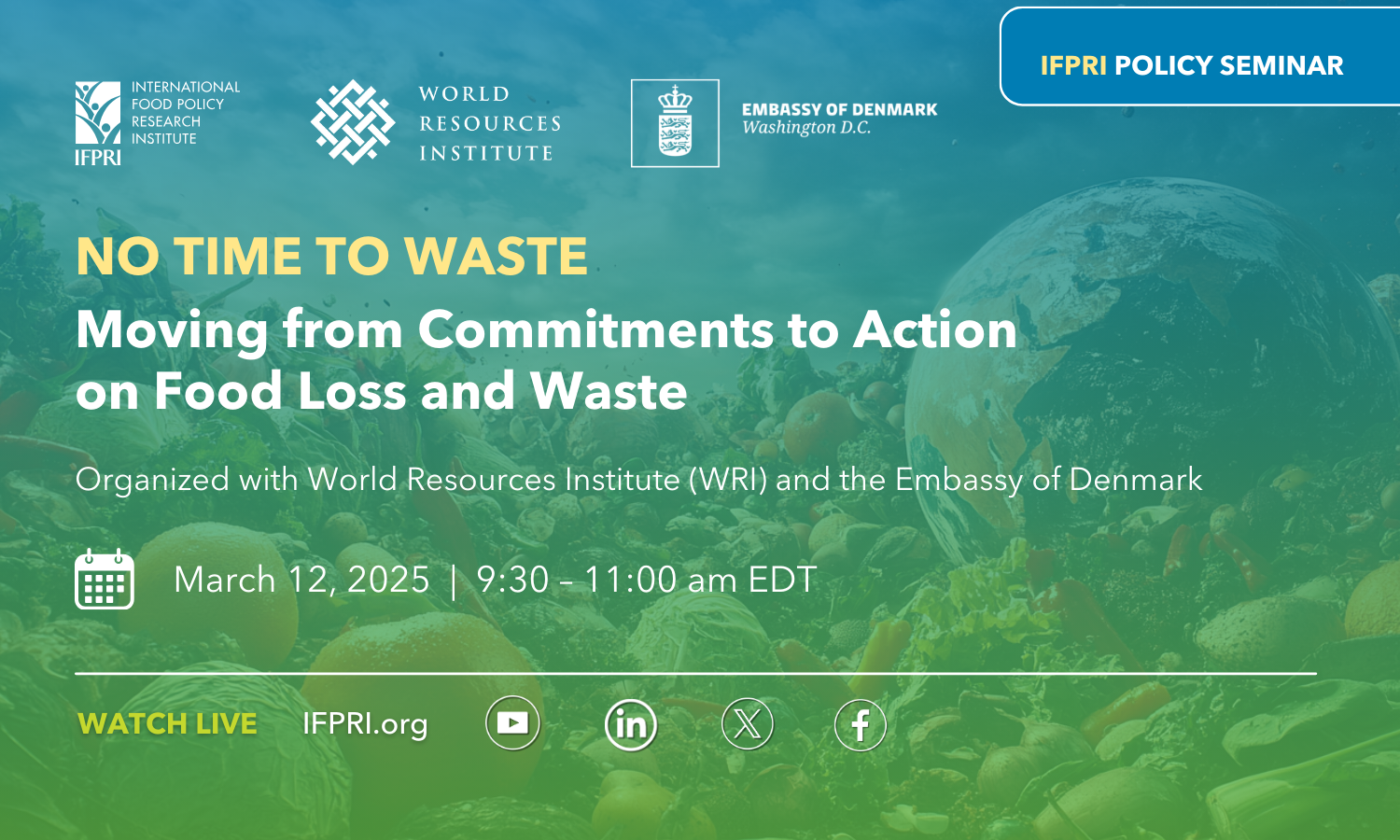
No Time to Waste: Moving from Commitments to Action on Food Loss and Waste
Co-organized by IFPRI, World Resources Institute (WRI), and the Embassy of Denmark in Washington D.C.
Significant levels of food loss and waste continue to have negative impacts on food security and the environment, and Sustainable Development Goal 12.3, which aims to halve food loss and waste worldwide by 2030, remains out of reach. Join us on “12.3 Day” 2025 to take stock of efforts and opportunities to make progress toward […]
-
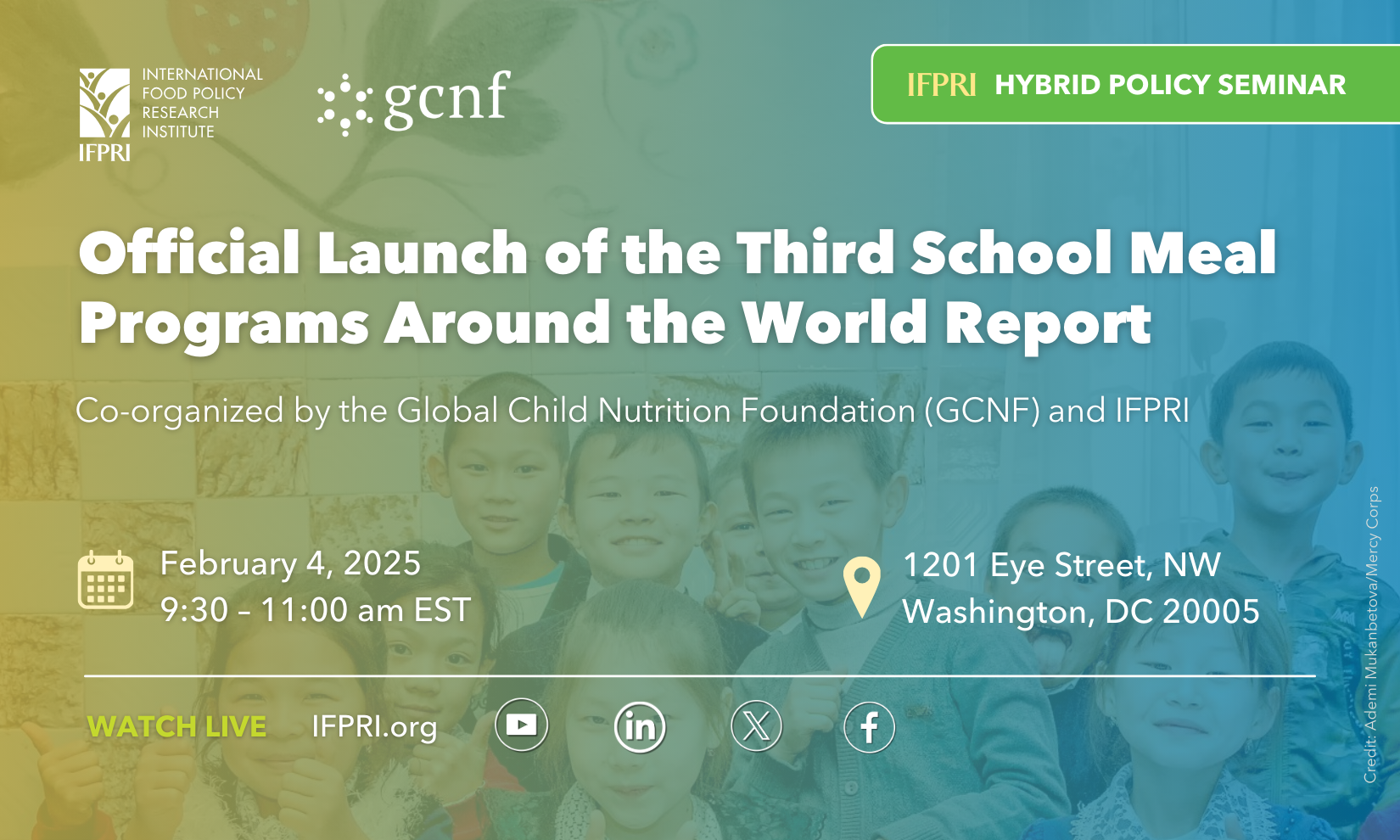
Official Launch of the Third School Meal Programs Around the World Report
Co-organized by the Global Child Nutrition Foundation (GCNF) and IFPRI
School meal programs are an effective way to boost children’s nutrition and wellbeing, including physiological development and academic performance. These programs can also play an important role in food systems transformation by ensuring access to healthy diets, supporting equitable livelihoods, and contributing to environmental sustainability. However, data on large-scale school meal programs have historically been […]
-
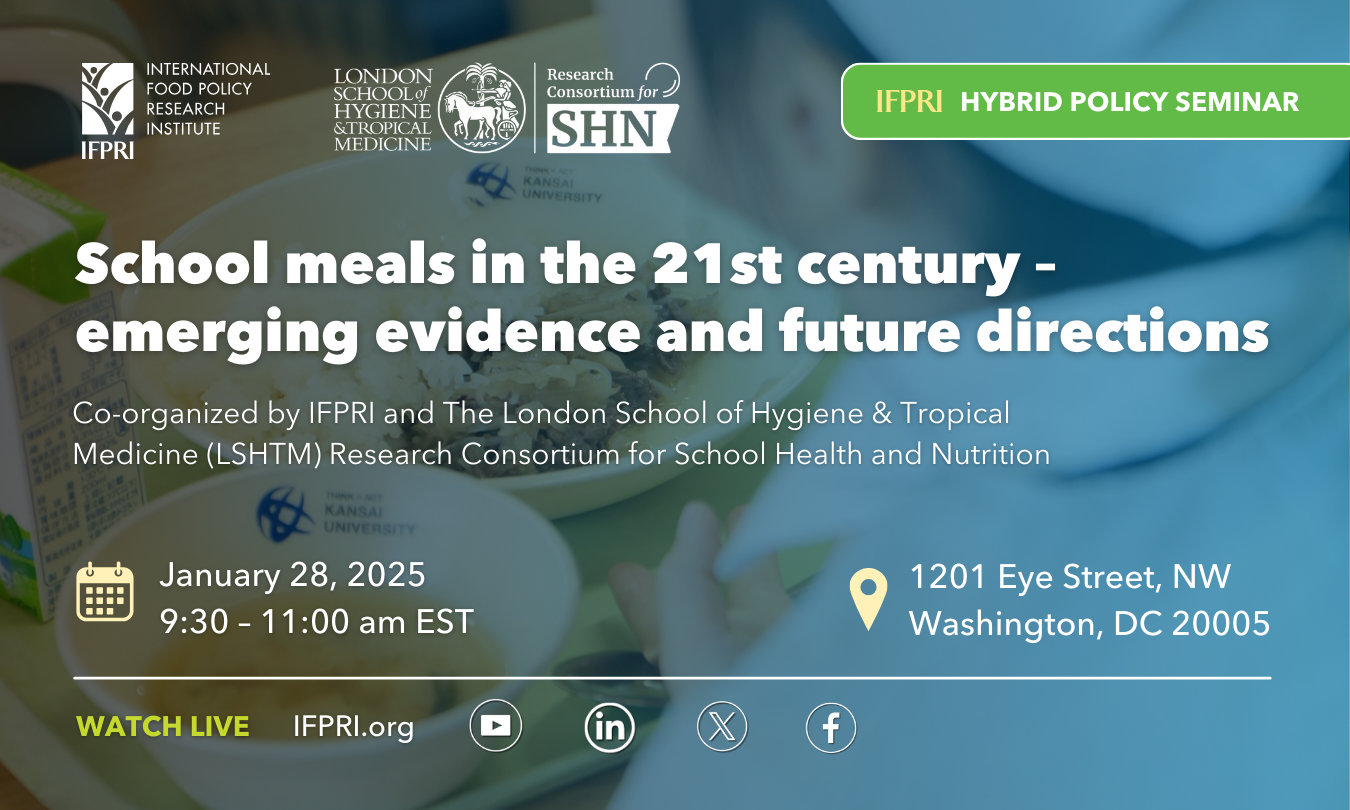
School meals in the 21st century – emerging evidence and future directions
Co-organized by IFPRI and The London School of Hygiene & Tropical Medicine (LSHTM) Research Consortium for School Health and Nutrition
Undernutrition during childhood and early adolescence has long-term consequences for development and health, and for girls it can affect the survival and wellbeing of their children. Diet-related risk factors are estimated to cause 20% of global mortality, and changes in food systems have led to rapid shifts to unhealthy diets and reductions in physical activity, […]
-
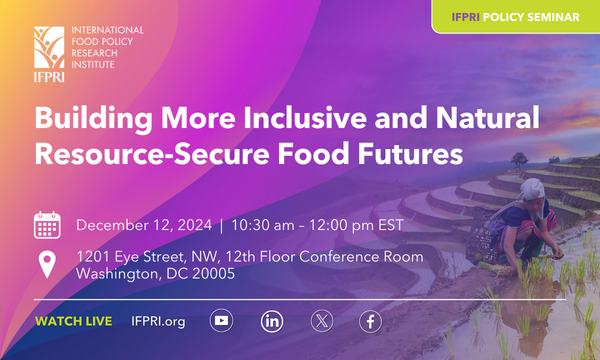
Building More Inclusive and Natural Resource-Secure Food Futures
Throughout her career, Ruth Meinzen-Dick has made pathbreaking contributions to natural resource management and gender equity, drawing from her deep engagement with communities to improve understanding and measurement in these areas. Dr. Meinzen-Dick’s research encompasses land and water policy, property rights, collective action, and games for experiential learning, with a longstanding focus on improving equity. […]
-
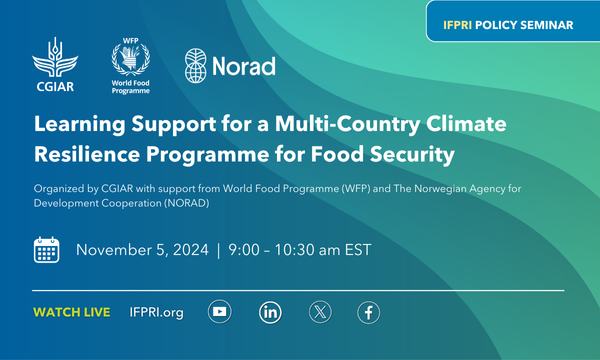
Learning Support for a Multi-Country Climate Resilience Programme for Food Security
Organized by CGIAR with support from World Food Programme (WFP) and The Norwegian Agency for Development Cooperation (Norad)
The Learning Support for a Sub-Saharan Africa Multi-Country Climate Resilience Program for Food Security, launched in 2023, aims to enhance food security and climate resilience across 14 African countries. This collaboration among CGIAR, the World Food Programme, and the Norwegian Agency for Development Cooperation (Norad) has three pillars: scaling disaster risk financing, transforming food systems […]
-
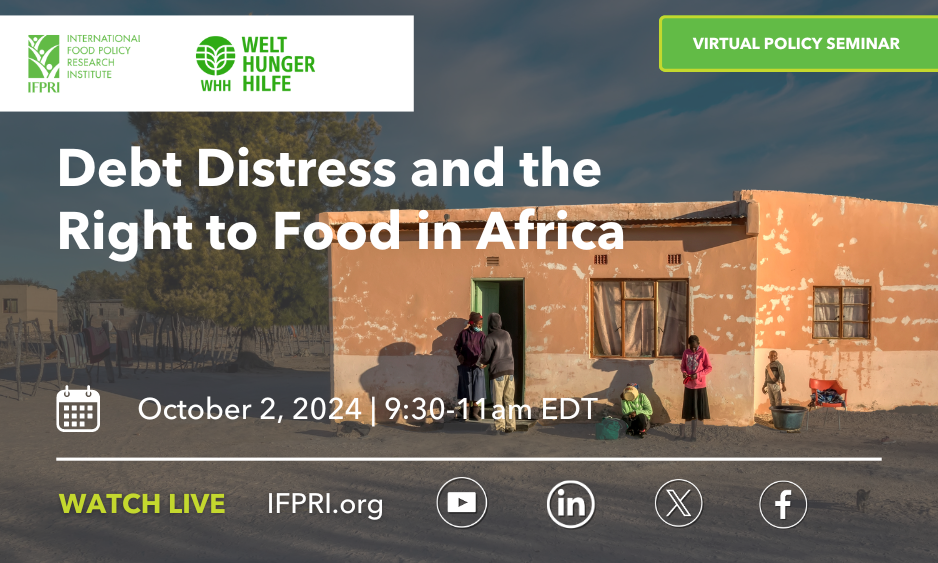
Debt Distress and the Right to Food in Africa
Co-organized by IFPRI and Welthungerhilfe (WHH)
More than half of low-income countries are at risk of debt distress or have already defaulted. The debt crisis, while exacerbated by recent crises, has been looming for several years. According to the United Nations, 3.3 billion people now live in countries that spend more on interest repayments than on education or health, and in […]
-
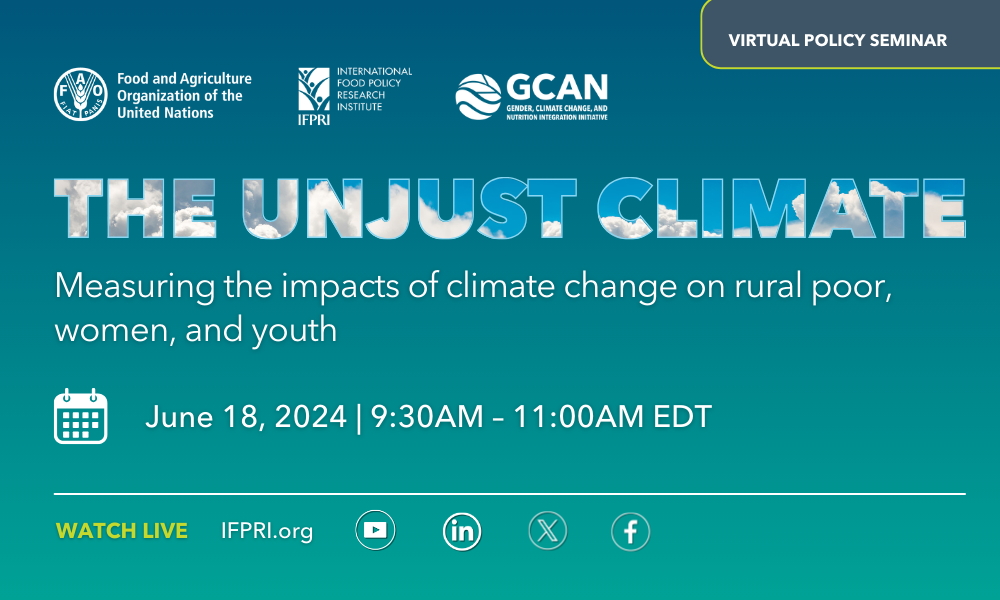
The Unjust Climate: Measuring the impacts of climate change on rural poor, women, and youth
Co-organized by IFPRI, Food and Agriculture Organization (FAO), and Gender, Climate Change and Nutrition Integration Initiative (GCAN)
Virtual Event: June 18, 2024 at 9:30am-11:00am EDT. This event will discuss key results from the report and hear from policymakers, practitioners, and partners on how they are working to generate relevant evidence and make a difference on the ground.
-

Sudan at a Crossroads: Food Systems, Hunger, and Humanitarian Aid During Civil Conflict
Hybrid Event: May 2, 2024 at 10:00am-11:30am EDT. This IFPRI policy seminar will reflect on urgent data, analytical, and policy needs to mitigate food insecurity and revitalize food systems in Sudan. This event will bring together researchers from IFPRI’s Sudan country program, conflict analysts, humanitarian donors, and country experts in a hybrid format.
-
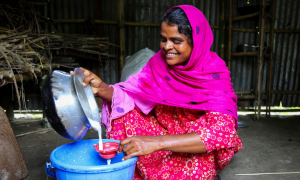
Dairy and Nutrition in the Global South: Potential, Progress, and Obstacles Ahead
Virtual Event: April 24, 2024 at 9:30am-11:00am EDT. This policy seminar examines the potential of dairy development to improve nutrition outcomes, focusing on dairy’s sizable potential for reducing child stunting and other forms of malnutrition, and how dairy systems are being developed to help meet this potential.
-
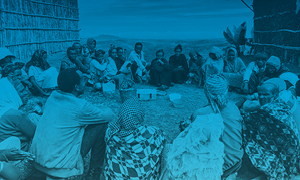
Deepening Social Protection Systems: Enhancing livelihoods and health in Ethiopia
Hybrid Event: April 17, 2024 at 10:30am-12:00pm EDT. This event will present findings from a randomized controlled trial of Strengthening PSNP Institutions and Resilience (SPIR), a graduation model program embedded within the PSNP that is led by World Vision, in collaboration with CARE and ORDA, and with support from the Ethiopian government and USAID.
-
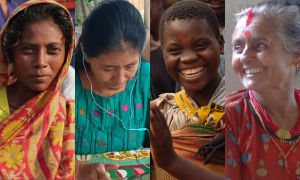
Introducing the new Women’s Empowerment Metric for National Statistical Systems (WEMNS)
Virtual Event: February 22, 2024 at 9:00am-10:30am EST. This event will present the WEMNS metric, review the development of the tool, and discuss its use to advance women’s empowerment. A panel of stakeholders from government and national statistical offices and from multilateral organizations will discuss the potential of WEMNS for promoting and monitoring women’s empowerment as part of national statistical surveys.
-
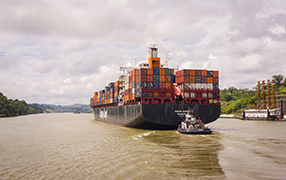
From Farm to Table: Agrifood Systems and Trade Challenges in the Southern Cone
Co-organized by IFPRI and United States Agency for International Development (USAID)
Virtual Event: December 12, 2023 – 9:30 AM- 11:00 AM EST. During this event speakers will present an analysis of the main challenges faced by national agrifood systems in the Southern Cone, especially in relation to new regulations and barriers that may affect international trade and export conditions.
-
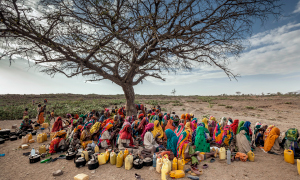
Implications of El Niño 2023/24 for Africa South of the Sahara
Co-organized by IFPRI, USAID Famine Early Warning Network (FEWS NET), and NASA Goddard Space Flight Center
Virtual Event: November 29, 2023 at 7:30am-9:00am EST. IFPRI in collaboration with USAID FEWS NET and NASA’s Goddard Space Flight Center, is hosting a presentation on the potential impact of the upcoming El Niño on the global agrifood system, with special emphasis on low-income countries in Africa South of the Sahara. The event will be organized around four short talks.
-
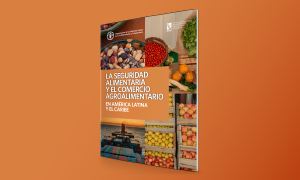
Food Security and Agrifood Trade in Latin America and the Caribbean
Co-organized by IFPRI and The Food and Agriculture Organization of the United Nations (FAO)
Virtual Event: November 28, 2023 at 10:00am-11:00am EST. IFPRI and The Food and Agriculture Organization of the United Nations (FAO) cordially invite you to the launch of the report: Food Security and Agrifood Trade in Latin American and the Caribbean, La Seguridad Alimentaria y el Comercio Agroalimentario en América Latina y el Caribe.
-
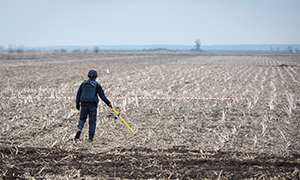
Food System Repercussions of the Russia-Ukraine War
2023 Borlaug Dialogue Breakout session
Virtual Event: October 26, 2023 at 1:10pm-2:10pm EDT. This session will examine the impacts of the conflict in Ukraine on food systems around the world. Russia’s February 2022 invasion triggered trade disruptions and dramatic price increases for energy, agricultural commodities, and fertilizers, which were already high following the COVID-19 lockdowns and value chain disruptions.
-
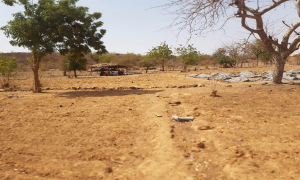
Research Findings on Resilience & Social Cohesion in Burkina Faso and Niger
Co-organized by IFPRI, World Food Programme (WFP), Institute for Peace and Development (IPD), and the CGIAR Research Initiative on Fragility, Conflict, and Migration (FCM)
Virtual Event: July 11, 2023 – 9:00 AM- 10:30 AM EDT. WFP, IFPRI and IPD are jointly offering this webinar to disseminate the study’s findings on social cohesion in Niger and Burkina Faso to create an opportunity for interested actors to discuss their feedback and the way forward.
-
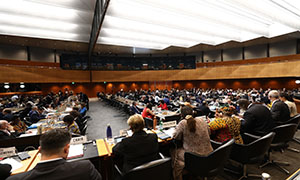
Farm Subsidies and International Trade Rules
Hybrid Event: May 25, 2023 – 9:30 AM- 11:00 AM EDT. This trade policy seminar will provide a review and future-oriented discussion on domestic support, featuring Lars Brink and David Orden, authors of the recently published book Agricultural Domestic Support under the WTO: Experience and Prospects.
-
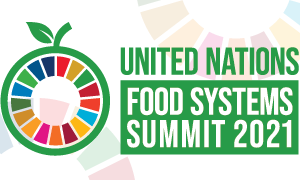
Science and Innovation for Food Systems Transformation – follow up to the 2021 UN Food Systems Summit
In cooperation with the former Scientific Group of the 2021 UN Food Systems Summit
Hybrid Event: April 11, 2023 – 9:30 AM- 11:00 AM EDT. This event will explore scientific findings that inform food systems transformation and point to research gaps, and examine food systems governance and the role of global institutions in shepherding food systems transformation.
-
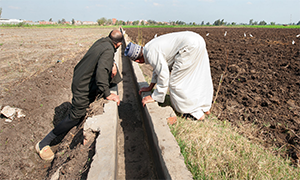
Water & SDGs – Downscaling WATer relevant SDGs (DWAT-SDGs)
2023 UN Water Conference Side Event
Virtual Event: March 20, 2023 – 10:00 AM- 11:00 AM EST. This session will exchange existing tools and case studies linked to SDG 6 implementation from member countries and will develop suggestions and partnerships for expanding SDG 6 localization, making an important contribution to the Water Action Agenda.
-
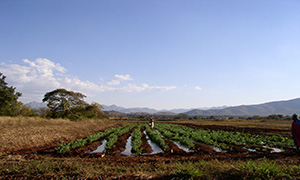
Groundwater: Potential and Pitfalls for Africa
2023 UN Water Conference Side Event
Virtual Event: March 20, 2023 – 8:00 AM- 9:30 AM EST. This event will discuss the African Ministers’ Council on Water’s (AMCOW) groundwater program with case studies on the benefits of groundwater development as well as institutional advances in several African countries.
-
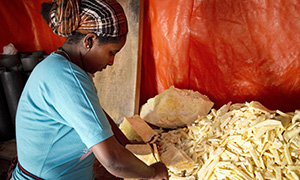
How USD 10 billion can transform food systems in Ethiopia, Malawi, and Nigeria: Report launch
Co-organized by IFPRI, International Institute for Sustainable Development (IISD), and Shamba Centre for Food and Climate
Virtual Event: March 16, 2023 – 9:00 AM- 10:30 AM EDT. This seminar will discuss how sustainable food system transformation can be achieved in the next decade in Ethiopia, Malawi, and Nigeria by increasing public investment by US$10 billion per year (on average from 2023 to 2030) and implementing a more effective portfolio of interventions that achieve multiple outcomes.
-
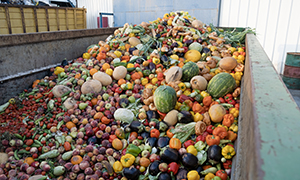
Food Loss and Waste in Fruit and Vegetable Supply Chains
Co-organized by IFPRI, Embassy of Denmark, and World Resources Institute
Virtual Event: March 14, 2023 – 9:30 AM- 11:00 AM EST. The seminar will take a closer look at fruits and vegetables, which are among the healthiest but most wasted foods. Given their perishable nature, great care, attention, and cooperation along all parts of fruit and vegetable value chains are required to reduce food loss and waste.
-
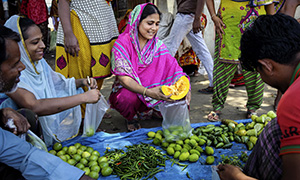
Introducing pro-WEAI complementary indicators for nutrition- sensitive agriculture and market inclusion projects
with support from BMGF, GIZ, MCC, USAID, and CGIAR Research Programs on Policies, Institutions, and Markets (PIM), and Agriculture for Nutrition and Health (A4NH)
Virtual Event: March 2, 2023 – 9:00 AM- 10:30 AM EST. This Policy Seminar will introduce the new health and nutrition (HN) and market inclusion (MI) indicators and explain how they can guide nutrition-sensitive and market inclusion elements of agricultural development projects.
-
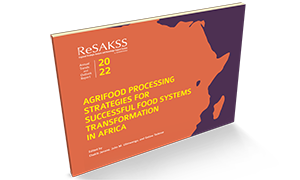
Taking Stock of Africa’s Agrifood Processing Sector
Key findings of the 2022 ReSAKSS Annual Trends and Outlook Report on Agrifood Processing Strategies for Successful Food Systems Transformation in Africa
Virtual Event: February 9, 2023 – 8:00 AM- 9:30 AM EST. During this event key research findings and policy recommendations of the 2022 ATOR will be presented and discussed by a distinguished panel of representatives from academia, the private sector, and international and regional organizations engaged in strengthening Africa’s agri-food processing sector.
-
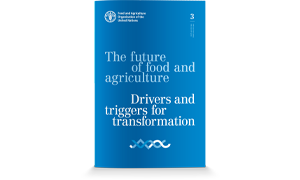
The future of food and agriculture – Drivers and triggers for transformation
Co-organized by Food and Agriculture Organization (FAO), IFPRI, and the CGIAR Research Initiative on Foresight
Virtual Event: February 1, 2023 – 10:00 AM- 11:15 AM EST. This policy seminar, co-organized by FAO, IFPRI, and the CGIAR Research Initiative on Foresight, offers an opportunity to hear from the report’s authors and engage with a group of panel discussants on challenges facing food and agriculture.
-
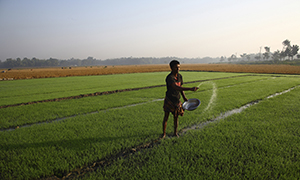
Harmful Environmental Impacts of Agricultural Subsidies
Co-organized by IFPRI and The University of Adelaide
Virtual Event: December 14, 2022 – 3:00 PM- 4:30 PM EST. This seminar will discuss the harmful environmental impacts of agricultural subsidies and how repurposing them could lead to policies that work better for people and the planet.
-
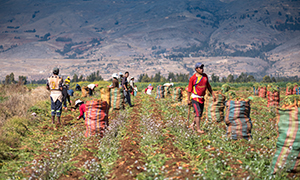
La agricultura de las Américas en el camino a la COP27: desafíos y oportunidades de la política pública
Co-organized by IFPRI and Instituto Interamericano de Cooperación para la Agricultura (IICA) with support from USAID
Virtual Event: October 27, 2022 – 9:30 AM to 11:00 AM EDT. This event will be in Spanish, with English interpretation available and seeks to create a space for inter-agency dialogue and discussion on the changes and continuities in regional public policy regarding the contribution of agriculture to face the climate crisis.
-
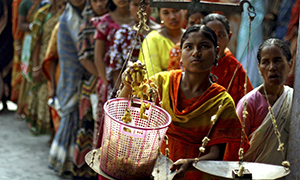
Ensuring a Focus on Women and Girls in the Global Food Crisis Response
Co-organized by United States Agency for International Development (USAID), Feed the Future Initiative, IFPRI, and the CGIAR GENDER Impact Platform
Virtual Event: October 20, 2022 – 9:30 AM to 11:00 AM EDT. This event will discuss how to chart a course toward more resilient and equitable food systems that create more opportunities for women and girls, leading to greater gender equality and greater prosperity for all.
-
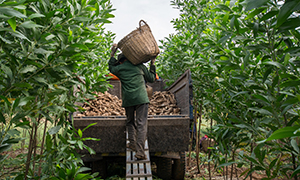
Globalization and food security: What could 20 years of IFPRI research teach us?
Virtual Event: October 12, 2022 – 11:00 AM to 12:30 AM EDT. The event will review 20 years of policy questions and associated research in the field of trade and food security.
-
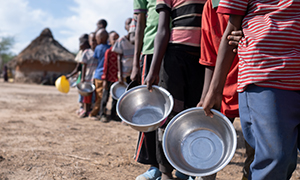
Call for Action to Address the Global Food Security Crisis
Virtual Event: October 5, 2022 – 09:30 AM to 11:00 AM EDT. The seminar will address questions and consider the proposals made by the Task Force on Food Security and Sustainable Agriculture of the Think20 (T20).
-
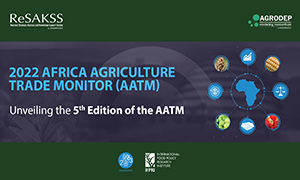
2022 Africa Agriculture Trade Monitor (AATM)
Leveraging Data to Improve Intra-Africa Food Trade
Virtual Event: September 27, 2022 – 09:30 AM to 11:15 AM EDT. The 2022 edition of AATM, analyzes short- and long-term trends and drivers of African agricultural trade flows. During this event speakers and discussants will review the report’s key findings and implications for next steps.
-
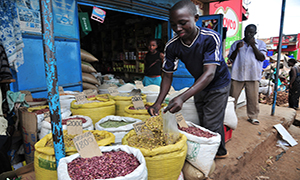
The Ukraine crisis: Unraveling the impacts and policy responses in low- and middle- income countries
Virtual Event: August 31, 2022 – 09:30 AM to 11:00 AM EDT. In this seminar speakers will share presentations and discussions on how policymakers and other key actors are addressing the challenges created by the Ukraine crisis in specific countries.
-

Nudging for Good: AI driven diagnostics and behavior change to improve diets and nutrition
Virtual Event: July 28, 2022 – 12:00 PM to 02:00 PM EDT. This seminar will launch the FRANI app and discuss the results of new dietary assessment technologies and perspectives on the way forward for technology-assisted diet assessment.
-
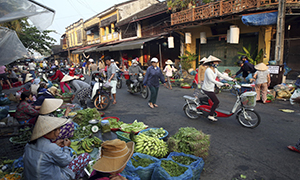
Addressing the global food security crisis
Strengthening research and policy responses
Virtual Event: July 25, 2022 – 09:30 AM to 11:00 AM EDT. This policy seminar will analyze the impacts of the war in Ukraine on food security in low- and-middle-income countries, highlight GAFS, and showcase how CGIAR’s immediate and longer-term responses can support policy initiatives.
-
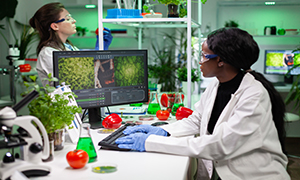
Strengthening policy research and analysis capacity: The role of institutional development programs
Virtual Event: July 21, 2022 – 09:00 AM to 10:30 AM EDT. In this seminar, panelists and discussants will draw on their experiences with collaborative research in institutional development programs, and explore the lessons learned for strengthening policy research.
-
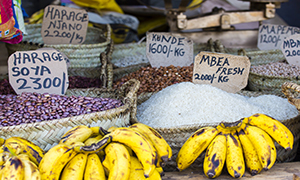
Are healthy diets affordable? Using new data on retail prices and diet costs to guide agricultural and food policy
Co-organized by IFPRI, Tufts University, the World Bank, and Food and Agriculture Organization (FAO)
Virtual Event: July 15, 2022 – 10:00 AM to 11:30 AM EDT. This Policy Seminar will feature Food Prices for Nutrition project leaders and participants around the world, who will discuss how policy analysts and researchers can use the new methods and data in their own work.
-
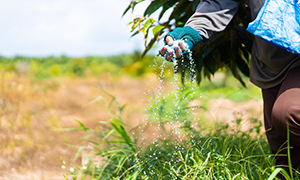
Fertilizer Availability and Affordability: Implications for agricultural productivity and food security
Virtual Event: May 4, 2022 – 9:30 AM to 11:00 AM EDT. During this event speakers will address the implications of increased prices on fertilizer demand, usage and productivity, the viability of government fertilizer subsidies and soil health.
-
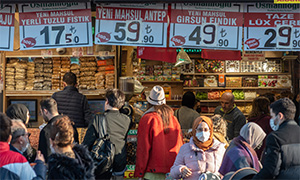
Retail food prices at the country level and implications for food security
How are rising food prices, further aggravated by the invasion of Ukraine, being transmitted at the country level?
Virtual Event: March 29, 2022 – 9:30 AM to 11:00 AM EDT. How are rising food prices, further aggravated by the invasion of Ukraine, being transmitted at the country level? This policy seminar will examine how global commodity prices are transmitted at the national level and what other country-specific aspects influence retail prices.
-
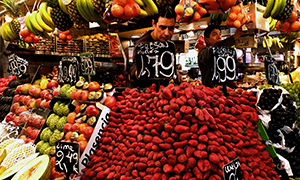
Global commodity prices and food security: Navigating new challenges and learning from the past
Virtual Event: March 9, 2022 – 9:30 AM to 11:30 AM EST. This policy seminar will present global data on key agricultural commodity, energy, transportation, and fertilizer markets to paint a comprehensive picture of price trends and their underlying causes
-
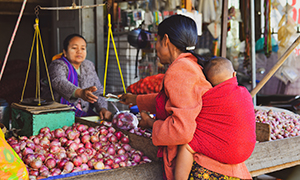
Advancing Food Systems Transformation: Dialogue between German Development Cooperation and CGIAR
Co-organized by German Federal Ministry for Economic Cooperation and Development (BMZ), CGIAR, IFPRI and Deutsche Gesellschaft für Internationale Zusammenarbeit (GIZ)
Virtual Event: Feb 23, 2022 – 9:30 AM to 11:00 AM EST. This event focuses on the importance of international food systems research and the science-policy interface for advancing key actions in Germany’s strategic directions for agriculture.
-

Sustainable Land Use: Role of soil for sustainable food systems
A Food and Agriculture Transatlantic Dialogue
Virtual Event: Feb 17, 2022 – 10:00 AM to 11:30 AM EST. At this policy seminar, the key outcomes of the GFFA will be presented and discussed, with a particular focus on the policy commitments and partnerships essential for improving soil health.
-
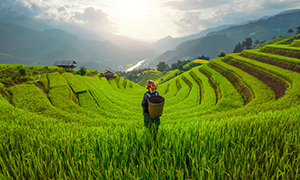
Can agricultural policies deliver better value for money for people, the planet, and the economy?
Co-Organized by IFPRI and World Bank Group
Virtual Event: Feb 02, 2022 – 09:30 AM to 11:00 AM EST. This policy seminar will present a summary of the latest IFPRI-World Bank research findings and feature speakers discussing the need for more rapid adoption of technological solutions that foster less emissions-intensive productivity growth across developed and developing countries alike.
-
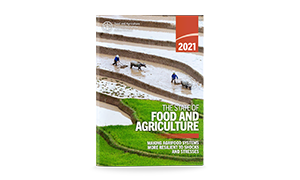
Making agrifood systems more resilient to shocks and stresses
Co-Organized by IFPRI and FAO North America
Virtual Event: Jan 19, 2022 – 09:30 AM to 11:00 AM EST. This policy seminar will discuss policy conclusions from the FAO’s The State of Food and Agriculture 2021 and how to act on them.
-
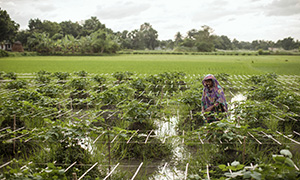
Disciplining Domestic Support
Virtual Event: NOV 30, 2021- 09:00 AM to 10:00 AM EST. This event will discuss a recent report by IFPRI researchers that suggests that new disciplines could reduce distortions and provide significant protection in domestic support disciplines.
-
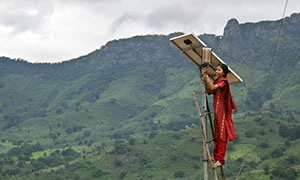
Ideas for confronting climate change today
Virtual Event: OCT 14, 2021- 09:30 AM to 10:45 AM EDT. This event will engage presenters on key questions about food systems and climate change in the lead up to CoP26.
-
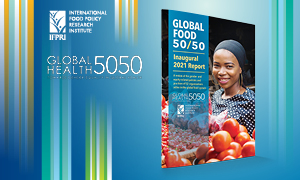
Global Food 50/50: Inaugural report on gender, diversity and power in the global food system
Co-Organized by IFPRI and Global Health 50/50
Virtual Event: OCT 5, 2021 – 08:00 AM to 09:30 AM EDT. This event will present findings of the report and explore how new accountability mechanisms can power a broader movement to demand more inclusive organizations across the global food system.
-
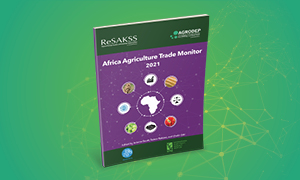
Making the most of intra-African trade: the 2021 Africa Agriculture Trade Monitor
Co-Organized by IFPRI and AKADEMIYA2063
Virtual Event: SEP 23, 2021 – 09:30 – 11:00 AM EDT. This seminar will explore the 2021 findings, including the impact of COVID-19 and the AfCFTA.
-
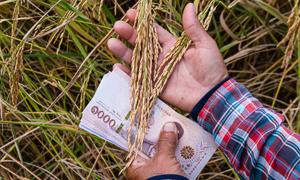
Financing food systems transformation
Virtual Event: July 13, 2021 – 09:30 AM to 11:00 AM EDT. This event will bring together a group of experts to discuss options for mobilizing and utilizing funding to finance food systems transformation.
-
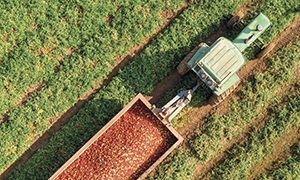
UNFSS Science Days Side Event: Reforming Agricultural Policies to Support Food Systems Transformation
Co-organized by IFPRI, Indian Council for International Economic Research (ICRIER) and Academy of Global Food Economics and Policy, China Agricultural University
Virtual Event: July 7, 2021- 09:30 AM to 11:00 AM EDT. Discussion about how agriculture policies could more effectivley meet the increasing demand for sustainably produced food, facilitate more nutritious diets, and promote better livelihoods.
-
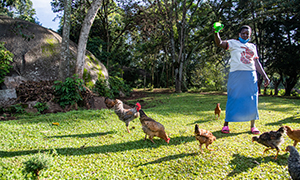
UNFSS Science Days Side Event: COVID-19, food systems, and One Health in an urbanizing world: Research responses at a national level
Co-Organized by CGIAR and RUAF
Virtual Event: July 6, 2021- 09:30 AM to 11:00 AM EDT. This event will highlight how technologies and policies in the agri-food sector can help improve food and nutrition security for the world's growing urban populations.
-
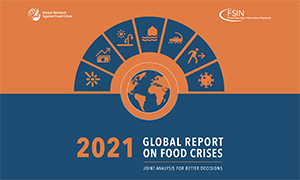
Global Report on Food Crises 2021: Building resilience to prevent food crises and conflict
Co-Organized by IFPRI, FSIN, FAO North America, World Food Programme and the Food Security Portal
Experiences and strategies that can build food systems resilience to prevent food crises and conflict.
Watch video
-
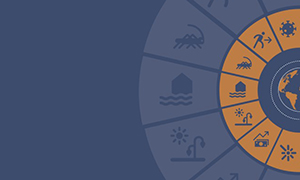
2021 Global Report on Food Crises
Global Network Against Food Crises, European Union, FAO and WFP
Virtual Event: MAY 05, 2021 – 08:30 AM TO 10:30 AM EDT. Johan Swinnen is a panelist in 2021 Global Report on Food Crises event.
-
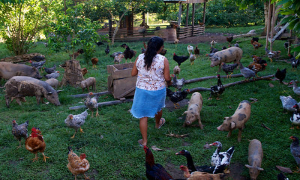
CGIAR COVID-19 Hub Seminar: COVID-19 and Implications for One Health Research
Co-Organized by CGIAR COVID-19 Hub and IFPRI
Virtual Event: May 04, 2021 – 09:30 AM TO 11:00 AM EDT. CGIAR presents research regarding the role of agriculture and provides policy recommendations.
-
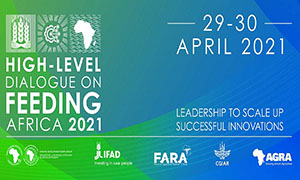
High-level Dialogue on Feeding Africa 2021: Leadership to Scale up Successful Innovations
African Development Bank, IFAD, FARA and CGIAR
Virtual Event: APR 29, 2021- APR 30, 2021- 06:00 AM TO 11:00 AM EDT. Johan Swinnen is a speaker.
-
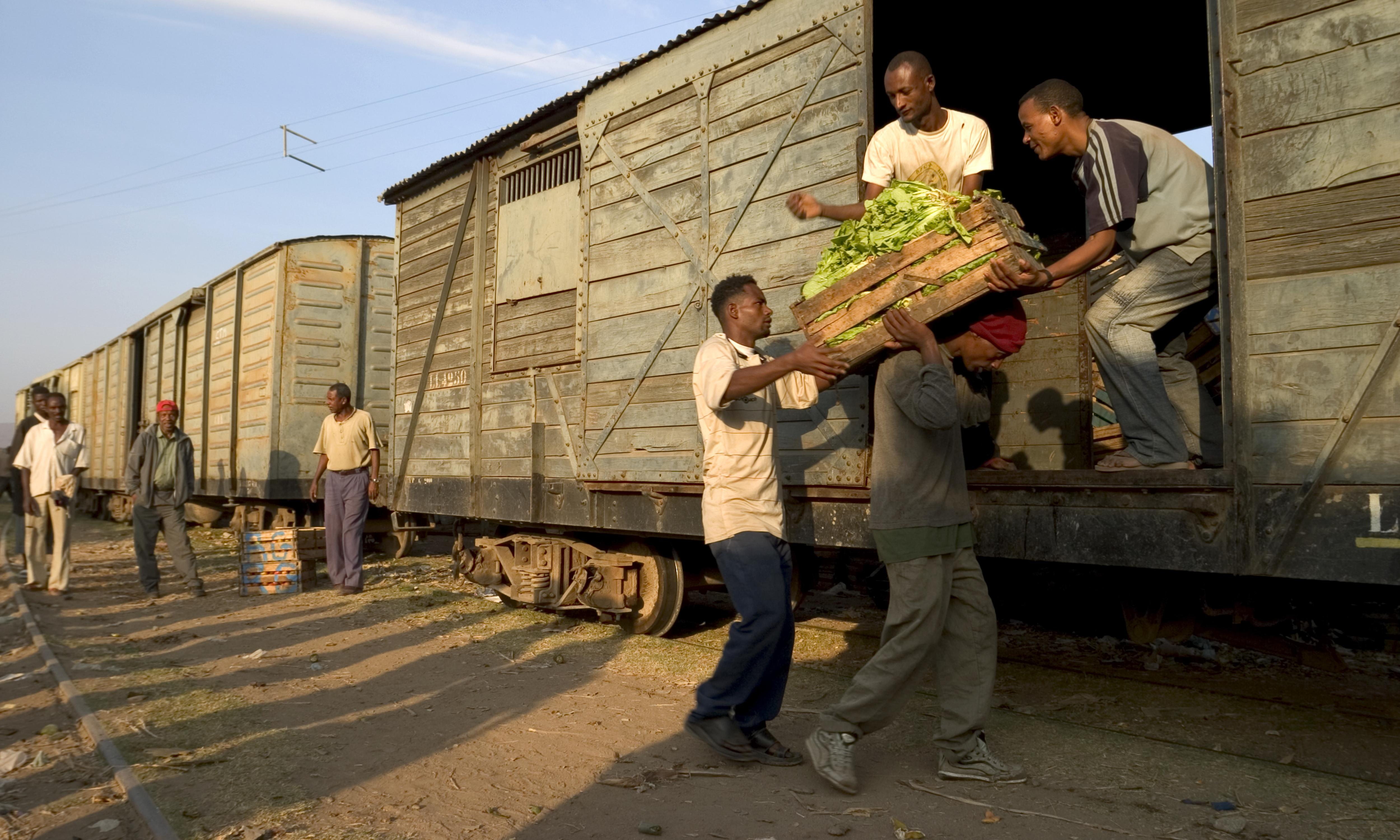
Evolving factors shaping trade in agriculture and food
Co-organized by IFPRI’s Strategy & Program Council
How can negotiations in the WTO be revitalized to address the concerns of international agricultural trade & the global food crisis?
Watch Video
-
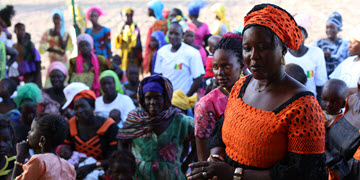
Examining the State of Community-led Development Programming
Co-Organized by IFPRI and Movement for Community-led Development
Community-led development (CLD) is a complex human change process. Join us as we dive into the Movement for Community-led Development’s State of CLD Programming report to understand what organizations are doing when they say they are implementing community-led development programs. Which characteristics are most prevalent in this work and which areas need more emphasis? How […]
-
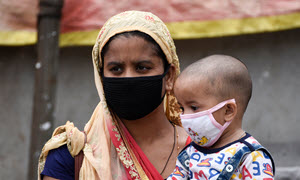
Tackling child undernutrition at scale: Insights from national and subnational success cases
Co-Organized by IFPRI and Exemplars in Global Health
Virtual Event: APR 1, 2021 – 09:30 AM TO 11:00 AM EDT. Lessons from these deep research programs offer hope that big change is possible and provide specific direction for countries striving to accelerate progress on nutrition
-
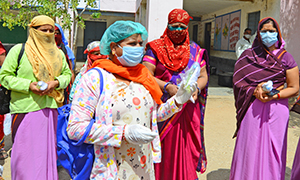
Towards Resilient Livelihoods, Food Security, and Nutrition for All: Confronting the Gendered Impacts of COVID-19
Co-Organized by IFPRI, the United States Agency for International Development (USAID) and the World Bank
Discussion on phone surveys on the gendered impacts of COVID-19; how to mitigate negative gendered impacts; and how COVID-19 policies & programs incorporate a gender lens.
Watch video -
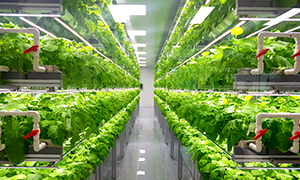
Socio-Technical Innovation Bundles for Agri-Food Systems Transformation: Implications for research and the One CGIAR agenda
“Innovations do not diffuse independently of enabling market, regulatory, and sociocultural environments. Scaling promising technological advances requires sociotechnical innovation bundles of context-dependent, customized combinations of mutually reinforcing innovations.” IFPRI is pleased to host a conversation with Professor Christopher Barrett and other experts on what is required to bring about healthy, equitable, resilient, and sustainable (HERS) […]
-
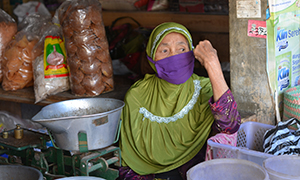
Food systems lessons from COVID-19: From understanding fragilities to building resilience
Co-Organized by IFPRI and the CGIAR COVID-19 Hub
COVID-19’s impacts on our global food system have affected the food security and nutritional wellbeing of millions of people worldwide, with market closures, supply disruptions, and income and employment losses. Understanding the extent and nature of these impacts will be critical to building resilience to future shocks. At this seminar, researchers from the CGIAR COVID-19 Hub […]
-
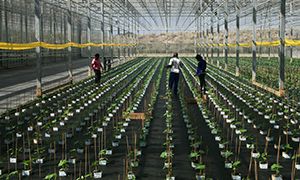
Virtual Event – Building back better: How can public food and agricultural research institutions be strengthened and rebuilt after the COVID-19 pandemic?
Co-Organized by IFPRI and the International Consortium on Applied Bioeconomy Research (ICABR)
How can public food and agricultural research institutions be strengthened and rebuilt after the COVID-19 pandemic?
Watch Video
-
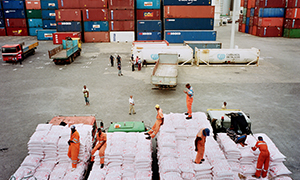
Virtual Event – Local vs Global? The role of trade in building food system resilience
As the COVID-19 pandemic continues to wreak havoc on the global economy and put pressure on food supply chains, debate has resurged about the role of trade in protecting food security. Though food supply chains have proved fairly resilient during the outbreak, many countries have faced both severe disruptions in supply and shifts in food […]
-
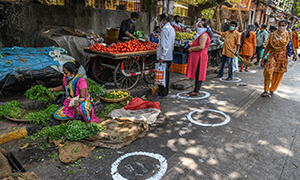
Virtual Event – CGIAR COVID-19 Hub: Supporting National Responses to a Global Pandemic
Co-Organized by IFPRI and CGIAR COVID-19 Hub
As the global leader in agricultural research, CGIAR took action in the earliest days of the pandemic to counter the potentially devastating impact on food security and nutrition worldwide. The CGIAR COVID-19 Hub mobilizes multidisciplinary research and innovation in support of national response efforts. This seminar brings together researchers and national partners from Bangladesh and […]
-
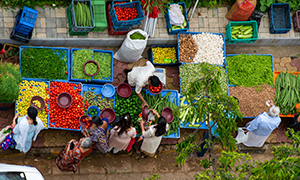
Virtual Event – Food and Agricultural Trade in the New Policy Environment: How Can WTO Members Support Recovery and Resilience in South Asia?
Co-Organized by IFPRI and the International Institute for Sustainable Development (IISD)
Please note this event will be at 4:30pm IST / 6:00am EST. The coronavirus outbreak has affected trade in food and farm goods, imperiling efforts to reduce hunger and malnutrition and adding to pressure already on the farm sector from climate change. The pandemic-induced postponement of the WTO’s next ministerial conference and ongoing tensions among […]
-
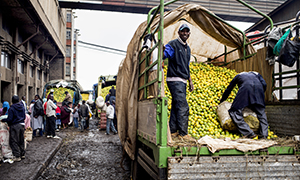
Virtual Event – The African Continental Free Trade Area: How will economic distribution change?
Panelists discuss the anticipated political and economic changes & distribution effects of the AfCFTA as it unfolds.
Watch Video
-
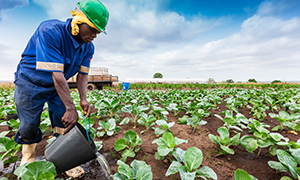
Virtual Event – Food and Agricultural Trade in the New Policy Environment: How Can WTO Members Support Recovery and Resilience in Africa (English panel)?
Co-Organized by IFPRI, Akademiya2063, and International Institute for Sustainable Development (IISD)
How can WTO members support recovery and resilience in Africa?
Watch video
-
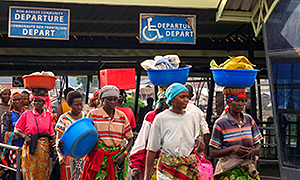
Virtual Event – Informal African trade: The hidden world of food flows
What are the emerging trends in agricultural informal cross-border trade, the barriers to participating in formal customs procedures and trade, and the role of female informal traders?
Watch Video -
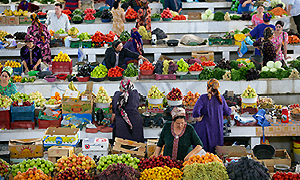
Virtual Event – Food Policy Research and Capacity Development in Eurasia
Co-Organized by the Eurasian Center for Food Security (ECFS), World Bank Group, and IFPRI
Strengthening the region's policy systems through evidence-based policy support, effectively engaging with policymakers, & supporting the next generation of analysts and researchers.
Watch Video -

Virtual Event – The New Nutrition Reality: Time to Recognize and Tackle the Double Burden of Malnutrition!
Multiple drivers affect the double burden of malnutrition. Can new nutrition policies tackle both forms of malnutrition at the same time and be effective?
Watch Video -
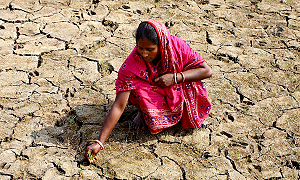
Virtual Event – Information Needs for Food Crisis Risk Early Warning: The Role of the Food Security Portal
Co-Organized by IFPRI and the Food Security Portal (FSP)
Persistent drivers of food insecurity and acute hunger—conflict, climate shocks, and environmental shocks—have been compounded in 2020 by the COVID-19-related health and socioeconomic upheaval and by the severe desert locust outbreaks in East Africa. The pandemic is expected to push as many as 132 million more people into chronic hunger in 2020, in addition to […]
-
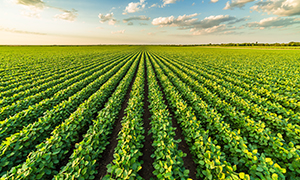
Virtual Event – Food and Agricultural Trade in the New Policy Environment: How Can WTO Members Support Economic Recovery and Resilience in Latin America and the Caribbean?
Co-Organized by IFPRI, Inter-American Institute for Cooperation on Agriculture (IICA), and International Institute for Sustainable Development (IISD)
Co-Organized by IFPRI, Inter-American Institute for Cooperation on Agriculture (IICA), and International Institute for Sustainable Development (IISD)
-
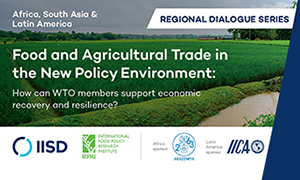
Évènement virtuel – Commerce alimentaire et agricole dans le nouvel environnement politique : Comment les membres de l’OMC peuvent-ils appuyer la reprise économique et la résilience de l’Afrique?
Co-organisé par l’IFPRI, Akademiya2063 & International Institute for Sustainable Development (IISD)
Le commerce des denrées alimentaires et des produits agricoles a été affecté par la pandémie du COVID-19, mettant en péril les efforts visant à faire progresser la lutte contre la faim et la malnutrition conformément au cadre défini par les Objectifs de développement durable (ODD). En même temps, le secteur agricole subit une pression croissante […]
-
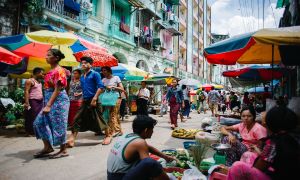
Assessments of the Impacts of COVID-19 on Myanmar’s food security and welfare
While a much stronger second wave of COVID-19 cases poses a serious and sustained threat to the health of the Myanmar population, it also brings renewed economic disruptions and poses new challenges for efforts to avert poverty, food insecurity, and malnutrition. To generate evidence that can better inform the design of emergency response and economic […]
-
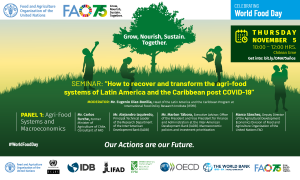
Agri-food Systems and Macroeconomics
Organized by FAO Regional Office for Latin America and the Caribbean
Moderator Speakers
-
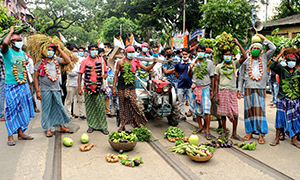
Virtual Event – The political economy of COVID-19: Impacts on agriculture and food policies
impacts on ag & food policies; how it has altered the balance of power among urban & rural populations, the state & private sectors, and across government ministries?
Watch Video -
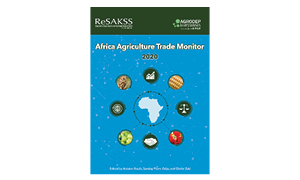
Virtual Event – The African Agriculture Trade Monitor 2020
Co-Organized by IFPRI and AKADEMIYA2063
Against the background of worldwide trade disruptions due to COVID-19, IFPRI and AKADEMIYA2063 are launching the third annual Africa Agriculture Trade Monitor (AATM), the leading comprehensive report on African agricultural trade flows and policies. The report’s authors will discuss emerging trends in African countries’ trade flows and compositions, comparative advantages globally and regionally, tariff and non-tariff […]
-
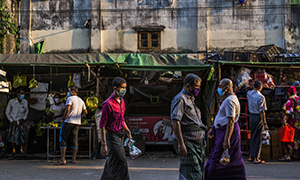
COVID-19 and Food Market Disruptions in Myanmar
The rise of COVID-19 infections and policies imposed to control the spread of the disease might have created significant food market disruptions. Disruptions in food markets are an obvious concern, given the importance of agricultural prices for the income of farmers and food prices for the already lower purchasing power – due to reduced incomes […]
-
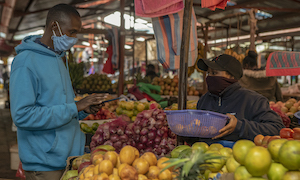
Virtual Event – COVID-19, global markets and African agricultural trade: Impacts on growth and food security
Organized by IFPRI, with support from the United States Agency for International Development (USAID)
The economic shocks of COVID-19 on global markets have left the African continent, along with its producers and consumers, distinctly vulnerable. This seminar will examine how changes in global food trade since the pandemic have impacted African food systems, regional supply chains and food access. Presenters will discuss the potential long-term risks of trade disruptions […]
-
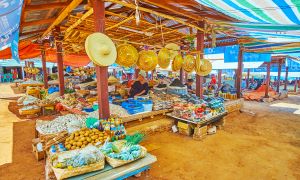
Assessing the Impact of COVID-19 on Food and Nutrition Security in Myanmar
The impacts of the COVID-19 economic crisis are threatening the livelihoods and welfare of vulnerable households in Myanmar. Declining household income, from increases in unemployment and declines in remittances, can have negative long-term effects on the food and nutrition insecurity of households and the overall welfare of vulnerable populations. A deeper understanding of the social […]
-

Assessing the Impact of COVID-19 on Myanmar’s Livestock and Fishery Sectors
Myanmar’s livestock and fishery sectors are crucial to the livelihoods of many vulnerable households, and an important dimension in improving nutritional outcomes in the country. The COVID-19 pandemic and efforts to mitigate its spread have led to disruptions in these sectors arising from declines in incomes and restrictions on movement. Careful monitoring of the impact […]
-
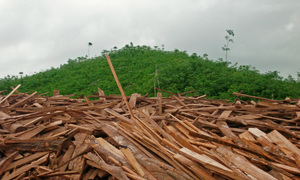
Virtual Event – COVID-19: The role of the agriculture-ecosystem health interface
Presenters discuss possible cross-sectoral policies and actions for enhancing human and ecosystem health, with a focus on the role of One CGIAR. WATCH VIDEO
-
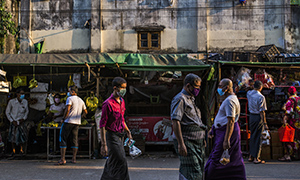
Virtual Event – COVID-19’s Short-term Impacts on Economies, Food Systems and Poverty in African and Asian Countries: Economywide Estimates from Economywide Models
Co-Organized by IFPRI and the CGIAR Research Program on Policies, Institutions, and Markets (PIM)
Using economywide models, presenters discuss the varied effects of different policies and economic structures on food systems and poverty during COVID-19 in Nigeria, Myanmar, and Sudan.
Watch video -
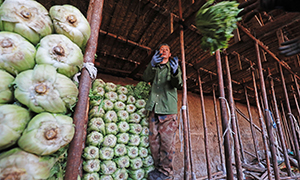
Virtual Event – Evolving effects of COVID-19 on poverty and food security: What are we learning from China?
After the COVID-19 outbreak began in December in Hubei Province, China locked down many areas to control the spread of the disease, and the economy ground to halt. Since the easing of restrictions in April, life has largely returned to normal and many economic activities have resumed. However, the lockdowns have had significant—and still not […]
-
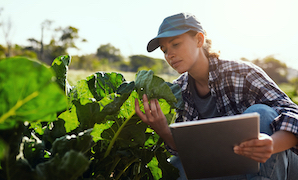
Virtual Event – The European Green Deal: The Force of the EU’s Farm to Fork Strategy and Biodiversity Strategy to Build Healthy and Sustainable Food Systems
Co-Organized by the European Commission and IFPRI
A discussion on the force of the EU's Farm to Fork Strategy & Biodiversity Strategy and building healthy & sustainable food systems.
Watch Video
-
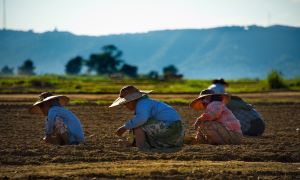
Assessing the Impact of COVID-19 on Myanmar’s Crop Value Chains
Experience with COVID-19 in many countries has revealed the vulnerability of agri-food value chains to disruption arising from declines in incomes and restrictions on the movement of produce, workers or service providers intended to protect health. Careful monitoring of the impact of COVID-19 on agri-food value chains can guide government, private sector and development partners […]
-

Beyond COVID-19: Strengthening Climate Resilience in Egypt’s Agricultural Sector
IFPRI’s Egypt Strategy Support Program (Egypt SSP) is organizing a seminar on research findings from an assessment of alternative adaptation options at the farm and policy levels. On-farm options include, among others, changing planting dates, improved seed technology, and alternative irrigation technologies, to name a few. Off-farm options include enhanced efficiency of farm input delivery and […]
-
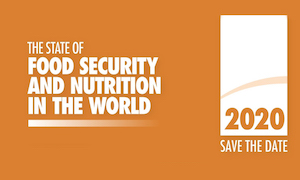
Virtual Event – Transforming Food Systems for Affordable, Healthy and Sustainable Diets for All: A High-Level Discussion on the Key Findings of the 2020 State of Food Security and Nutrition in the World Report
Co-Organized by FAO North America and IFPRI
Food systems and affordable, healthy & sustainable diets. Key findings of the 2020 SOFI.
Watch Video -

Virtual Event – Hindsight is 2020: Reflecting on IFPRI’s ‘2020 Vision Initiative’
Discussion on the achievements and remaining challenges since IFPRI’s landmark series that aimed to catalyze global action to eradicate hunger & malnutrition while protecting the environment.
Watch video -
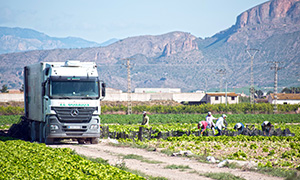
Virtual Event – How are food businesses coping with COVID-19 and its aftermath?
How are private food businesses adjusting to shifts in food demand and food safety requirements, on the one hand, and risks of supply chain disruptions, on the other? Watch video.
-
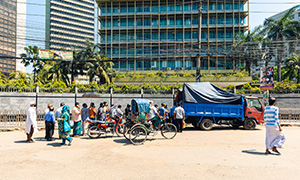
Virtual Event – Social Safety Nets and COVID-19: Can we protect food security and nutrition?
Co-Organized by IFPRI and the CGIAR Research Program on Policies, Institutions, and Markets (PIM)
How have social safety net programs responded to COVID-19? Are food security & nutrition issues effectively addressed with these responses? What and where are opportunities and future challenges? Watch Video
-
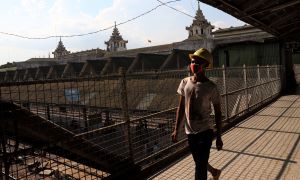
Assessing the Impact of COVID-19 on Myanmar’s Economy and the Impact of Falling Remittances on Poverty
COVID 19 and the mitigation policies imposed to control the spread of the disease have resulted in unexpected shocks to Myanmar’s economy. When industries and businesses must suspend operations, such policies have the potential to create catastrophic direct impacts on economic sectors. Additionally, COVID-19 pandemic impacts the remittances that Myanmar households receive from domestic and […]
-
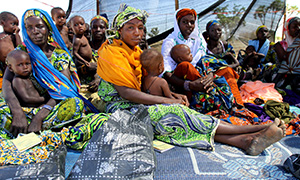
Virtual Event – Micronutrients in emergencies: How can we prevent an increase in hidden hunger?
Co-Organized by the Micronutrient Forum and IFPRI
The event video, presenter slides, podcast, and a blog will be available in the days following the event. The COVID-19 pandemic is transforming our world. We are seeing rapid changes in areas such as health care delivery, food security, agriculture, and international aid prioritization. In addition to the immediate impact to health and society, the […]
-

Evento Virtual – Alimentación en tiempos de pandemia: realismo sin magia en ALC
América Latina y el Caribe (ALC) es uno de los principales contribuyentes a la seguridad alimentaria mundial y a los servicios ecosistémicos globales, incluidos el secuestro de CO2 y la biodiversidad. Sin embargo, la región también está sufriendo de degradación ambiental, particularmente a través de las altas tasas de deforestación. Además, ALC es la región […]
-
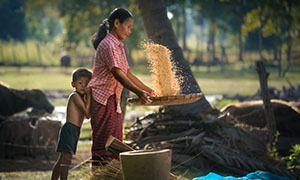
Virtual Event – No backsliding: How can we re-orient food systems and health systems to protect nutrition and healthy diets in the context of COVID-19?
Co-Organized by IFPRI and the CGIAR Research Program on Agriculture for Nutrition and Health (A4NH)
How can we re-orient food systems and health systems To protect nutrition and healthy diets in the context of COVID-19?
Watch video
-
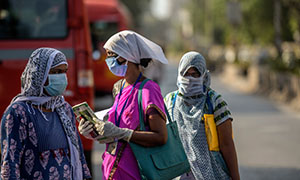
Virtual Event – What do we need for a gender-sensitive Covid-19 response in agriculture and food security? Insights from research and practice
Researchers, civil society members, and development assistance orgs share their perspectives on the elements of a gender-sensitive COVID-19 response.
Watch video
-
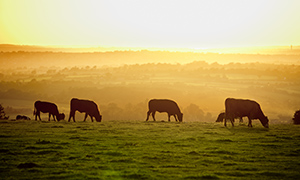
Virtual Event – Agricultural Support Reform and GHG Emissions
Governments spend over $US 700 billion dollars per year on agricultural support measures such as subsidies, border price distortions and investments in raising productivity. Agriculture and land use change contribute close to a quarter of global greenhouse gas emissions policy makers have little information on the implications of agricultural support for emissions. This seminar examines […]
-
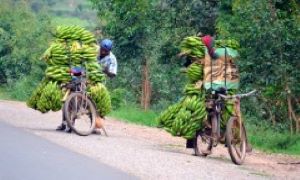
Rwanda National Policy Dialogue: Building Productive Capacities for Rwanda’s Agricultural Transformation, Rural Development, and Food Security
Co-Organized by the Ministry of Agriculture and Animal Resources (MINAGRI), the Economic Policy Network of Rwanda (EPRN), IFPRI, and Compact 2025
The Food Security Portal, in partnership with the Economic Policy Research Network Rwanda (EPRN), will hold a one-day national policy dialogue on building Rwanda’s productive capacities. The event will be a follow-on to the 6th EPRN Annual Economic Research Conference and will emphasize engaging up-and-coming members of the policy and research communities, including mid-level policy […]
-
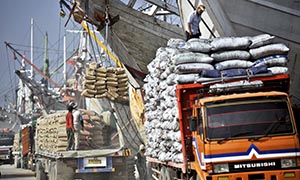
Greening of trade policies: The EU-Mercosur agreement
The 2030 Agenda calls on all countries to use trade to create a more sustainable, inclusive, and resilient world. We must ensure that the global trading system actively contributes to sustainability. Trade policies offer an opportunity to promote a broad shift in production and consumption that helps consumers to make better choices. The European Union-Mercosur […]
-
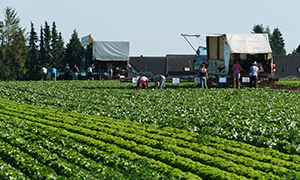
European Green Deal — Farm to Fork Strategy for Sustainable Food
Co-Organized by IFPRI and the European Union
The “Farm to Fork” Strategy, part of the European Commission’s Green Deal, is integral to Europe’s ambitious response to climate change challenges along the food chain. The “Farm to Fork” strategy reflects the ongoing transformation of food systems worldwide and the goal of making Europe’s food system the gold standard for sustainability. “Farm to Fork” […]
-
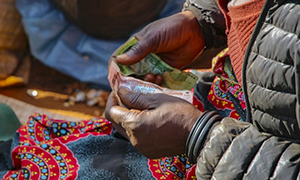
Integrated Cash Transfer Programs in West Africa: How to make cash transfer programs more nutrition sensitive?
IFPRI West and Central Africa Office and the Poverty, Health and Nutrition Division (PHND) will be hosting a policy seminar on Integrated Cash Transfer Programs in West Africa to provide evidence on the impacts of integrated programs implemented in West Africa and discuss program design and policy options to make them more nutrition-sensitive. The use […]
-
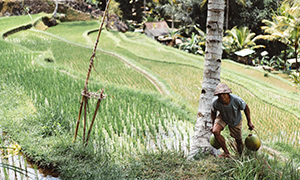
The changing challenges of hidden hunger: Micronutrients within the nutrition and development landscapes
Co-Organized by the Micronutrient Forum and IFPRI
Current global challenges in malnutrition and other development goals call for integrated, multi-sectoral approaches focusing on the entire food system, leading to healthier and sustainable diets for all. Among these challenges is micronutrient deficiency, known as “hidden hunger.” Micronutrients—vitamins and minerals needed in only very small quantities but with huge impacts on human health and […]
-
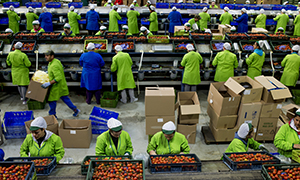
Trade for Secure, Diverse and Sustainable Nutrition: Key Messages from the Global Forum for Food and Agriculture (GFFA) 2020 Event
Co-Organized by IFPRI and the Embassy of the Federal Republic of Germany
The 2020 Global Forum for Food and Agriculture event “Food for All! Trade for Secure, Diverse and Sustainable Nutrition” brought together 16 Expert Panels hosted by policymakers, scientists, entrepreneurs, and stakeholders from civil society to discuss the role of international trade in achieving a healthy and sustainable food system. International trade has long helped reduce […]
-
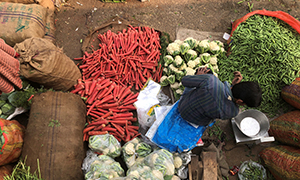
Food Systems Dashboard: How it will work
Co-Organized by IFPRI, CGIAR Research Program on Agriculture for Nutrition and Health (A4NH), Global Alliance for Improved Nutrition (GAIN), and Johns Hopkins University (JHU)
Our food systems are bankrupting our health systems, accelerating climate change and using natural resources in an unsustainable way. Most people agree they need to be transformed to change this. But how? Food systems are complex and offer many entry points for change. In addition, the data to describe food systems and their performance is […]
-
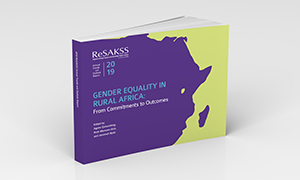
Gender Equality in Rural Africa: From Commitments to Outcomes
Co-Organized by the Regional Strategic Analysis and Knowledge Support System (ReSAKSS) and IFPRI
Gender equality has been recognized as an important goal in itself as well as important to achieving other development objectives, such as reducing hunger and poverty. This is true worldwide and especially so in rural Africa, where women play an important role in the agricultural sector. Gender-sensitive policies and programming are central to effectively advancing […]
-

Transforming Africa’s Food System with Digital Technologies
Co-Organized by the Malabo Montpellier Panel and IFPRI
African countries have made considerable progress in increasing agricultural productivity and reducing hunger, malnutrition, and poverty. But continued population growth, urbanization, changing diets, and climate change are putting pressure on food systems not only to provide more food but also to make more diverse and nutritious foods available and accessible. New digital technologies and services […]
-
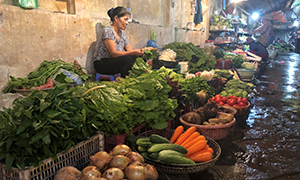
Food System Transformations: National Actions in a Globalized World
Co-Organized by the CGIAR Research Program on Agriculture for Nutrition and Health (A4NH) and IFPRI
Food systems in developing countries are undergoing a rapid transformation shaped by global and regional events. But country actions will be critical in shaping future food system outcomes. Some countries are taking a systemic approach to assessing and acting on food system transformation—considering consumption and food environments, food supply and sustainability, health, and socioeconomic outcomes. […]
-
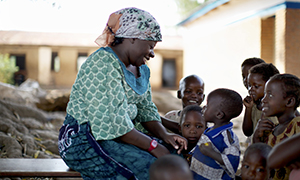
Using Malawi’s Community-Based Childcare Centers to Implement an Agriculture and Nutrition Intervention
Co-Organized by IFPRI, the University of Washington led SEEMS nutrition project, and the CGIAR Research Program on Agriculture for Improved Nutrition and Health (A4NH)
This policy seminar focuses on research undertaken in Malawi by IFPRI, the University of Malawi, Save the Children, and University of Washington in support to the Government’s early childhood development program. Community-based early childhood development centers in Malawi have been used as a platform to implement an integrated agriculture and nutrition behavior change intervention. Presentations […]
-
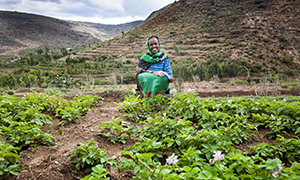
Crafting the Next Generation of CGIAR Gender Research
Co-Organized by the CGIAR Research Program on Policies, Institutions, and Markets and IFPRI
How can agriculture and natural resource management advance gender equality? Asking this question rather than only its inverse — what does gender analysis bring to agriculture and natural resource management? — elevates the objective of gender equality within CGIAR, challenges boundaries in thinking about gender in agriculture, and stimulates new and creative perspectives. Gender researchers […]
-
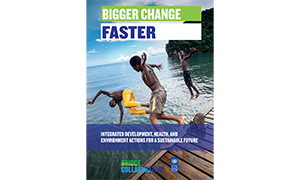
Bigger Change Faster: Integrated Development, Health, and Environment Actions for a Sustainable Future
Co-Organized by IFPRI, The Nature Conservancy, PATH, and Duke University
From climate change to malnutrition, poverty to biodiversity loss, air pollution to humanitarian crises—the problems facing our world today are deeply interconnected. Holistic initiatives to address these challenges, notably the Sustainable Development Goals (SDGs), are becoming more common. But efforts siloed within the development, health, or environment communities remain the norm. This seminar discusses the […]
-
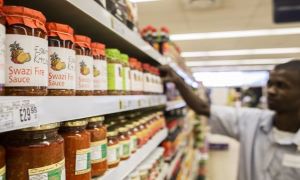
Africa’s Agriculture Trade in a Changing Environment
Trade is an important avenue through which countries transform their economies and raise standards of living. For African countries, trade in agricultural products offers great potential to boost incomes for farmers, processors and other agricultural value chain actors. Increasing the ability of African countries to participate in regional and global trade helps to improve well-being […]
-
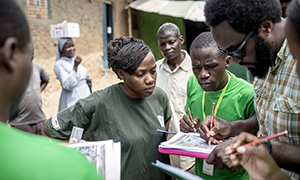
Information, Governance, and Rural Service Delivery
Co-Organized by IFPRI and the CGIAR Research Program on Policies, Institutions, and Markets (PIM)
How can information be harnessed to improve rural service delivery and governance? The articles in the new special issue of the journal World Development on “Information, Governance, and Rural Service Delivery,” coedited by Katrina Kosec (IFPRI) and Leonard Wantchekon (Princeton University), seek to answer this question. In this seminar, speakers will give an overview of […]
-
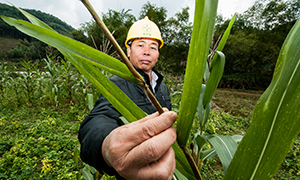
Adapting to New Climate Realities: Doing More, Better, and New
The Global Commission on Adaptation seeks to highlight the adaptation challenges confronting poor people, notably poor farmers whose livelihoods are fragile and dependent on the weather and launch a year of action to begin rising to meet this challenge. In this seminar, IFPRI researchers advance paths towards meeting the adaptation challenge by doing more, better, […]
-
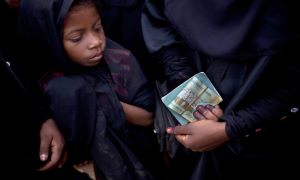
Impacts of Cash Transfers on Preventing Malnutrition in Yemen
Co-Organized by IFPRI and the CGIAR Research Program on Policies, Institutions, and Markets (PIM)
An impact evaluation of Yemen’s Cash for Nutrition program provides new evidence of the benefits of “cash plus” transfer programs to meet nutritional needs in conflict situations—a context in which rigorous evidence is scarce. This event will review the findings on the combination of cash transfers with nutritional education provided by the Yemen Social Fund for […]
-
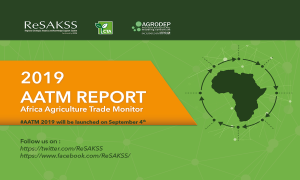
Launch of the 2019 Africa Agriculture Trade Monitor (AATM) Report
Co-Organized by IFPRI and the Center for Technical and Rural Cooperation (CTA)
IFPRI and CTA will be launching the second edition of the African Agriculture Trade Monitor report during a High-level Panel on Regional Food Trade Policy. The release of the AATM 2019 will coincide with the launch of the Regional Food Trade Platform which is one of the critical moments of this Policy Symposium session.
-
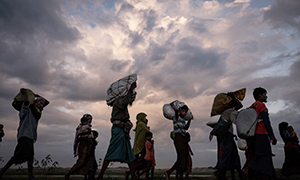
The Forced Exile of Rohingyas into Bangladesh: Economic and Nutritional Outcomes and Future Policy Options
More than 600,000 Rohingya people fled violence in Myanmar in 2017 and crossed into southeastern Bangladesh, joining 200,000 to 400,000 other forcibly displaced Myanmar nationals. This seminar will include analysis of incomes, employment, food security, and nutrition based on a household survey conducted in camps housing Rohingyas and in neighboring host communities. Model simulations […]
-
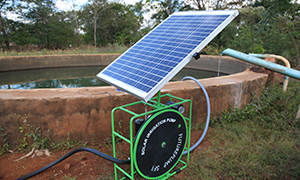
Faster than you think: Renewable Energy and Developing Countries
Large and rapid declines in costs for renewable energy systems, particularly solar and wind power, and efforts to limit greenhouse gas emissions are reshaping energy systems globally. Expanding renewable energy systems have great potential to achieve widespread electricity access, improve food security, and reduce emissions. Developing countries with high solar potential have a significant opportunity […]
-
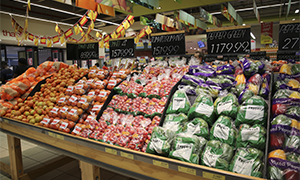
What is the Cost of a Healthy Diet? New Price Indexes Reveal Changes in Affordability of Nutritious Foods
Interventions and innovation can lower the price of individual foods, but healthy eating depends on access to a mix of foods from diverse sources. How has the overall cost of meeting dietary needs changed over time worldwide, and in Africa and South Asia specifically? What determines the cost of a healthy diet? And how does […]
-
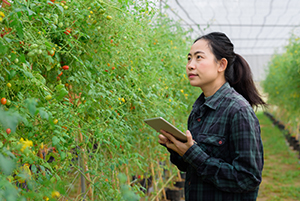
Investment Requirements to Achieve Food Security in Asia and the Pacific in 2030
Co-Organized by the Asian Development Bank (ADB), IFPRI, and China Center for Agricultural Policy (CCAP), Peking University
Session 1. Opening Session and Research PresentationsChair Opening/Welcome Remarks Technical Assistance Project Overview Research Project Overview Introduction of Experts Application of Information and Communication Technologies in the Agriculture Sector of Rural China ADB project to promote ICT application in agriculture value chains Projections of Food Supply and Demand and Investment Requirements for Food Security, China […]
-
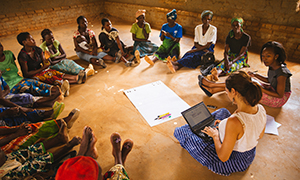
Lessons from IFPRI Country Programs on Informing Policy Decisions and Strengthening Capacity
Co-Organized by IFPRI and the CGIAR Research Program on Policies, Institutions, and Markets (PIM)
IFPRI and the CGIAR Research Program on Policies, Institutions, and Markets (PIM) recently completed a joint stock taking study of IFPRI’s experience with country programs and its more general policy of outposting research staff to developing countries. Several reports have been produced as part of the study and placed on the IFPRI website along with […]
-
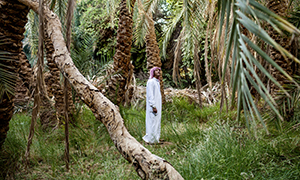
Digital Tools for Better Rural Investments: The Agricultural Investment Data Analyzer
Co-Organized by the International Fund for Agricultural Development (IFAD) and IFPRI
Building on the previous IFAD-IFPRI-PIM (CGIAR Research Program on Policies, Institutions, and Markets project), “Decreasing Vulnerability to Conflict in Arab Countries through Rural Development,” the Agricultural Investment Data Analyzer (AIDA) project will develop a set of forward-looking planning and evaluation tools to help improve the efficiency, effectiveness, and scaling up of rural development policies and projects. […]
-
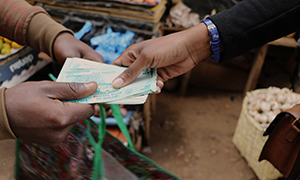
Building Resilience through Financial Inclusion: A Review of Existing Evidence and Knowledge Gaps
Co-Organized by IFPRI and Innovations for Poverty Action (IPA)
In low-income countries, disasters induced by climate change are giving rise to new risks, shocks, and stresses among already vulnerable households. Well-designed financial products and services could play a role in increasing low-income families’ resilience by helping them prepare for the uncertain: financial inclusion can facilitate efforts to reduce risks, increase investments, and bounce back […]
-
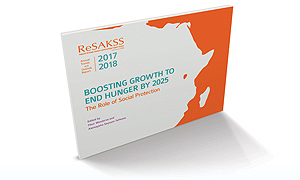
Boosting Growth to End Hunger by 2025 in Africa: The Role of Social Protection
Africa has the world’s largest proportion of poor and hungry people, but the lowest rate of coverage by social protection programs. Demand for social protection is growing in Africa, reflecting faster economic growth, rapid urbanization, and more open and pluralistic societies. In the 2014 Malabo Declaration, African leaders called for integrating social protection with measures […]
-
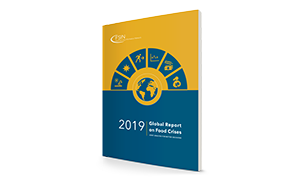
Technical Discussion on the 2019 Global Report on Food Crises: Working together to prevent food crises
Co-Organized by IFPRI, FAO North America and Food Security Information Network (FSIN)
Conflict and extreme climate events are contributing to rising levels of food insecurity and malnutrition. In 2018, some 113 million people in 53 countries experienced acute food insecurity. The Global Report on Food Crises provides the latest estimates of severe hunger and an analysis of countries chronically vulnerable to food crisis. The report’s findings are […]
-

Transforming Africa’s Agriculture Value Chains Through Mechanization
An agricultural mechanization agenda should harness the opportunities for mechanization at each stage of the agriculture value chain. Successful mechanization along the value chain will have to be a priority in future development and growth agendas for African smallholder agriculture and will require not only new technologies but also organizational innovations, such as reliable services […]
-
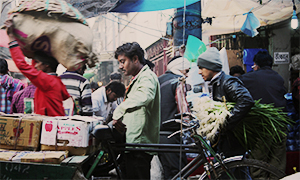
Who Will Feed India? The Political Economy of India’s Agricultural Policies and Implications for the Future
Co-Organized by IFPRI and the Center for the Advanced Study of India (CASI)
India’s population will soon be larger than China’s, economic growth is averaging 7 to 8 percent, and cities are expanding rapidly. Growing food, feed, and fiber needs are increasing pressure on India’s agriculture. With limited land and falling water tables, can India produce enough food for her population or will the country become a major […]
-
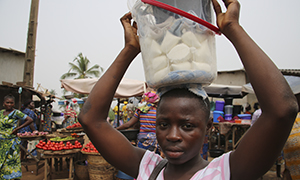
Food Markets and Nutrition in the Developing World: Results from ARENA II
Markets play a key role in delivering food and nutrition, even for poor and remote rural households. But nutrient-rich foods, especially animal-sourced foods, are very expensive in poor countries, suggesting that markets for perishable but nutritious foods are not functioning well. Both scientific research and real-world programs have largely focused on farm-level interventions to diversify […]
-
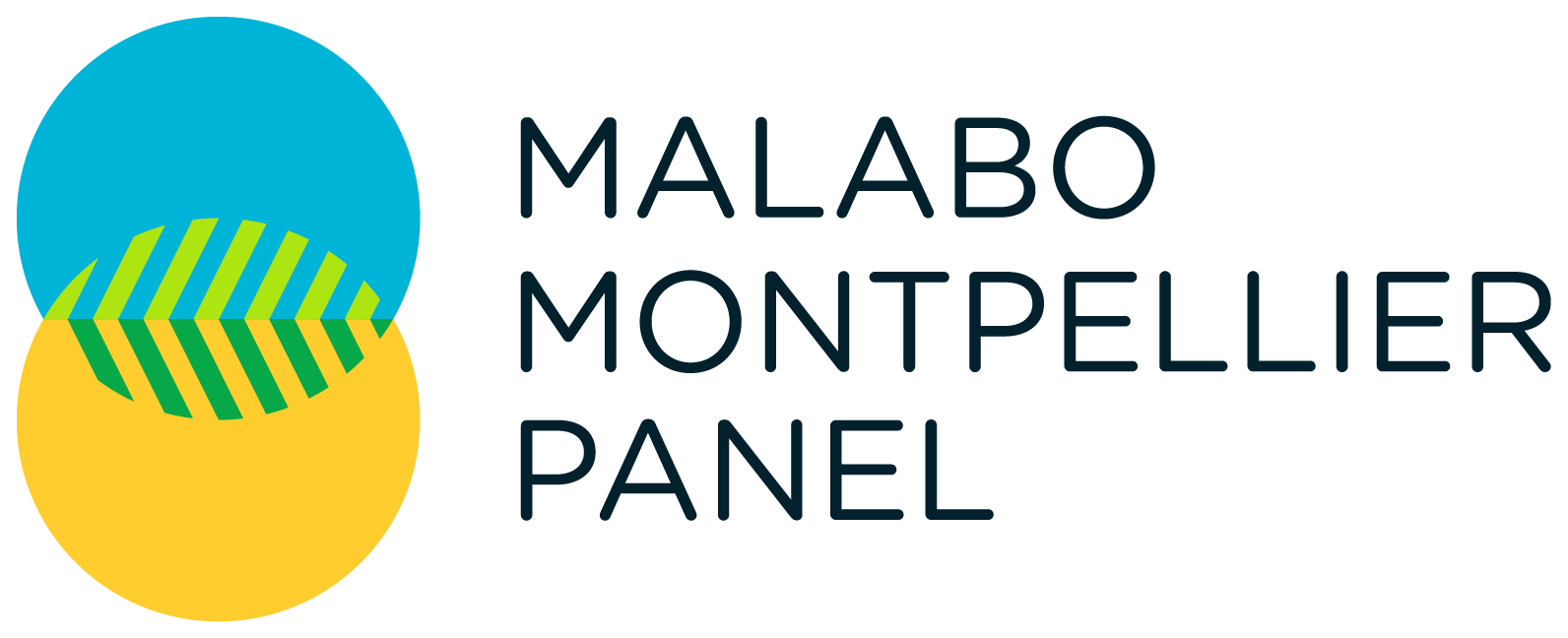
The Malabo Montpellier Panel: High Level Policy Innovation Through Evidence and Dialogue in Agriculture
Co-Organized by the African Development Bank (AfDB) and the Malabo Montpellier Panel in Abidjan
This event will cover the thematic areas covered under the Panel’s first three reports and bring together members of the Panel to present the key findings and recommendations, and to exchange with the experts at the AfDB. They will also discuss the way forward regarding the appropriation of the outcome of the reports by policy […]
-

Mechanization of African Agriculture – Does it Create or Destroy Jobs?
Africa needs jobs – productive employment for the many millions of young people who seek their first job every year, many of them in rural areas. The agricultural sector offers huge potential for productive employment. A study by the “Malabo Montpellier Panel” describes the state of mechanization of agriculture in Africa and testifies to considerable increases […]
-
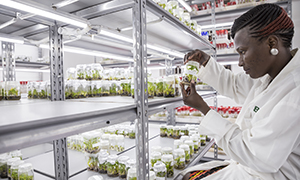
Transforming Food Systems to Deliver Healthy, Sustainable Diets : The View from the World’s Science Academies
Co-Organized by IFPRI and InterAcademy Partnership
The InterAcademy Partnership (IAP), a global network of science academies, recently brought together regional networks of science academies from four continents—Africa, the Americas, Asia, and Europe. This project aimed to spark a new global commitment to research the opportunities and challenges facing food and nutrition security and agriculture today. This seminar will provide details […]
-

Yemen Emergency Crisis Response Project: Impacts of Cash-for-Nutrition
Co-Organized by IFPRI and the World Bank Group
This report evaluates impacts on child nutrition of the Cash for Nutrition component of the Yemen Emergency Crisis Response Project, implemented by the Yemen Social Fund for Development. The current Cash for Nutrition program is a resumption and expansion of a conditional cash transfer program which started as a pilot in Al Hodeidah in January […]
-
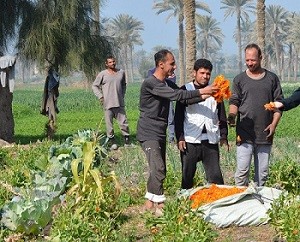
IFPRI Egypt Seminar: Advancing the Food System for Growth, Job Creation, and Better Nutrition in Egypt
According to joint IFPRI-CAPMAS estimates, the food system in Egypt makes up about 25 percent of the Egyptian economy and employs about 33 percent of the workforce. But the food system in Egypt is diverse and promoting different value chains within the food system is likely to lead to different outcomes. Each value chain has […]
-
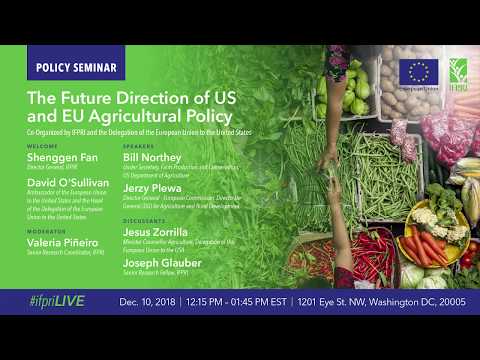
The Future Direction of US and EU Agricultural Policy
Co-Organized by IFPRI and the Delegation of the European Union to the United States
US and European agricultural policies have evolved over similar paths, shaped by the globalization of agricultural markets, consumer interests, environmental pressures, fiscal constraints, and World Trade Organization disciplines. As the US debates the 2018 Farm Bill and the EU debates a future Common Agricultural Policy for 2020, what can we expect for the future of agricultural […]
-
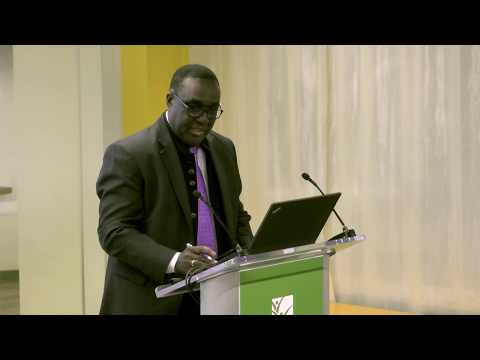
Agricultural and Food Systems Transformation for Better Food Security and Nutrition in Eurasia
Co-Organized by IFPRI, the World Bank, and CGIAR Research Program on Policies, Institutions, and Markets (PIM)
Significant changes in Eurasia’s agri-food systems and regional trade in the 2000s have had major impacts on food and nutrition security. This seminar will discuss recent developments in the political economy and food and nutrition security policies across six diverse countries in the region—Armenia, Kazakhstan, Kyrgyzstan, Russian Federation, Tajikistan, and Uzbekistan—and what the agri-food […]
-
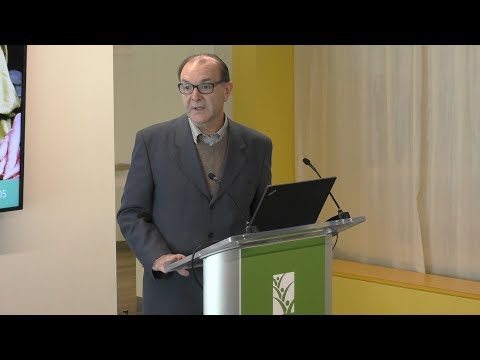
Agriculture, Structural Transformation and Poverty Reduction
Some New Insights
Agricultural development has traditionally been among the most effective tools for reducing poverty and central to development efforts. But does this still stand today, as countries have urbanized and the world has opened up? This seminar will present key results from a recent Special Issue of World Development that add important nuances to our understanding of the critical […]
-
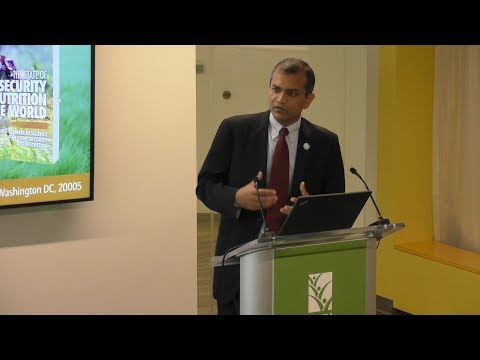
Discussion on the Key Findings of FAO’s 2018 State of Food Security and Nutrition in the World Report
Co-Organized by FAO and IFPRI
FAO’s 2018 State of Food Security and Nutrition in the World (SOFI) report highlights that for the third consecutive year global hunger has risen, now standing at 821 million people today compared to 804 million last year. This three-year increase represents a reversal of nearly a decade of positive trends in the fight against global […]
-
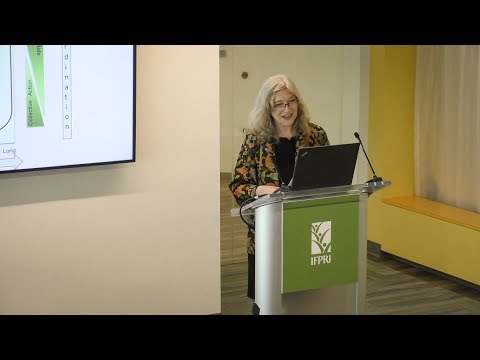
The Future of the Commons
Co-organized by IFPRI, the International Association for the Study of the Commons (IASC), and the CGIAR Research Program on Policies, Institutions, and Markets (PIM)
2018 marks the 50th anniversary of the publication of “The Tragedy of the Commons” by Garret Hardin. Its widely accepted message about the inevitable degradation of shared resources prompted privatization or nationalization of much common property. Yet sustainable management of the commons has a long history, and new evidence is increasing our understanding of effective […]
-
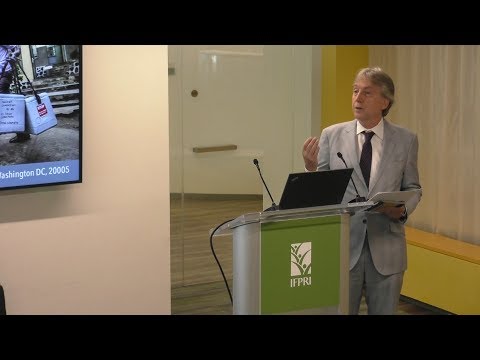
Nigeria’s Solar-Powered Cold Chain Business
Co-Organized by IFPRI and the Global Cold Chain Alliance
Cold storage and transportation are critical for agricultural productivity and reducing food loss/waste. Nigeria's "cold hub" experience sheds light on successes.
-
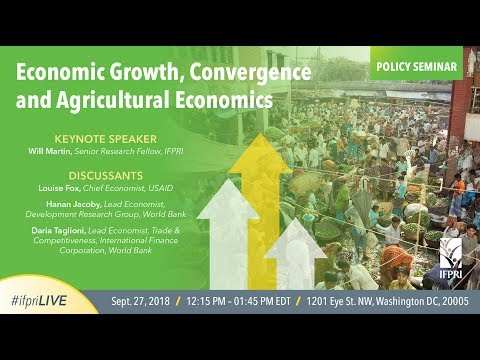
Economic Growth, Convergence and Agricultural Economics
Growth in many developing countries has surged in the last 25 years, driving major shifts in food demand, production, policies, and trade. What do these unprecedented changes mean for our research agenda? This seminar will look at the impacts of rapid developing country growth and convergence with developed countries, and the implications for future […]
-
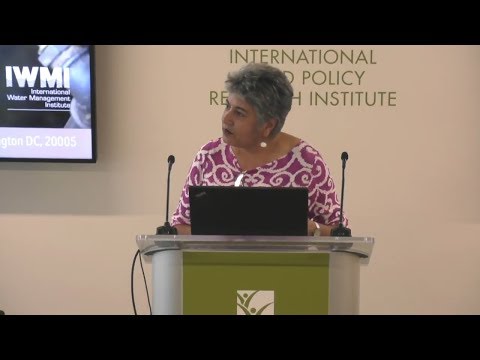
Water Security in a Changing World
Co-Organized by International Water Management Institute (IWMI) and IFPRI
Introductory Remarks Overview Panelists Closing Remarks Moderator Q&A Video Secure water supplies are critical to future sustainable economies and societies. Unprecedented human impact is directly degrading resource quality on every continent and, through global warming, threatens vast change in hydrological systems, with impacts on water availability and access in nearly all parts of the world. […]
-
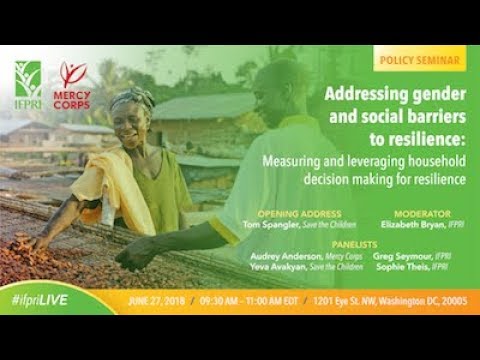
Addressing gender and social barriers to resilience: Measuring and leveraging household decision making for resilience
Co-Organized by IFPRI and Mercy Corps
Opening Address Panelists Moderator Q&A Video The concept of resilience is catching on among humanitarian and development actors seeking to help individuals, households, and communities prepare for, adapt to, and recover from severe shocks and stresses. Many organizations are recognizing that individuals’ resilience capacities and vulnerabilities differ significantly and are shaped by their gender, class, caste, […]
-

2018 Global Food Policy Report – Geneva, Switzerland
Co-Organized by UNCTAD and IFPRI
Moderator Overview Remarks Panel Antiglobalism was on the rise in 2017. What will that mean for food security and nutrition? IFPRI’s 2018 Global Food Policy Report examines the impacts of global integration—including the movement of goods, investment, people, and knowledge—and the threat of current antiglobalization pressures. This seventh annual report also provides perspective on the […]
-
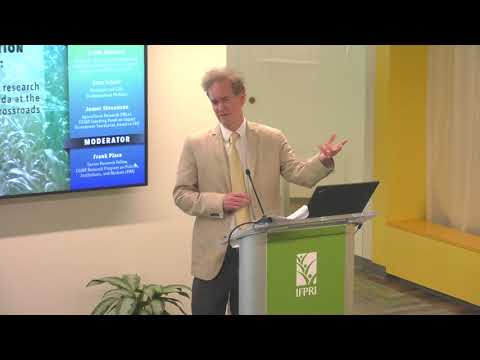
Managing Natural Resources for Sustainable Production Systems: A Research Agenda at the Crossroads
Co-Organized by CGIAR Independent Science and Partnership Council (ISPC); IFPRI; and CGIAR Research Program on Policies, Institutions and Markets
Speakers Moderator Q&A Video In 2015-16, the Standing Panel on Impact Assessment commissioned a set of studies to document the adoption and impact of five well-recognized natural resource practices that were developed, adapted, and promoted by CGIAR centers, research programs and its partners. The practices—conservation agriculture, fertilizer tree systems, alternate wetting and drying (AWD), integrated soil […]
-
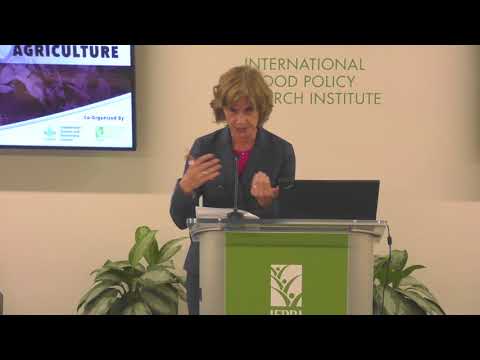
Advancing Research (and Policy) on Nutrition and Agriculture
Speaker Panelists Closing Remarks Moderator Q&A Video Podcast Audio The agricultural sector has long been viewed as a major driver of poverty reduction and food security in developing countries, but is now increasingly asked to contribute to reducing the global burden of undernutrition. The linkages between agriculture and nutrition are complex, however, and not well […]
-
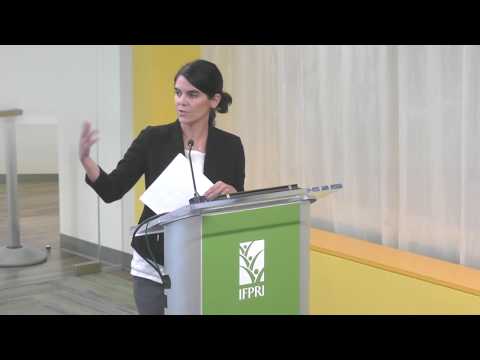
Argentina’s G20 Presidency: Building Consensus for Fair and Sustainable Development
Speakers Moderator What should we expect from Argentina’s G20 presidency? This roundtable event will highlight the challenges and expectations for 2018, focusing on trade, food security, and sustainable agriculture. Participants will look at the new presidency’s priorities, the outcomes of the Think20 (T20) inception workshop, and the lessons learned from the German presidency. Argentine president […]
-
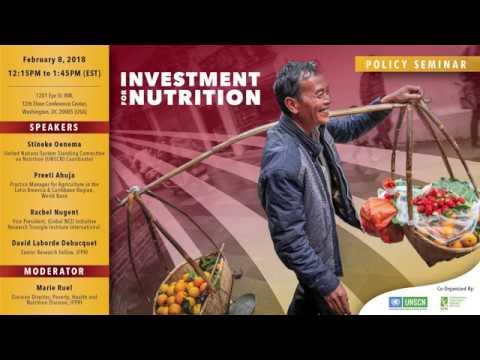
Investment for Nutrition
Co-Organized by UNSCN and IFPRI
Speakers Moderator Today, nearly 1 in 3 persons globally suffers from at least one form of malnutrition – undernutrition, micronutrient deficiency, overweight or obesity – and a large part of the world’s population is affected by diet-related non-communicable diseases (NCDs). The impacts of malnutrition on development, society, health, economies and well-being are serious and lasting, […]
-
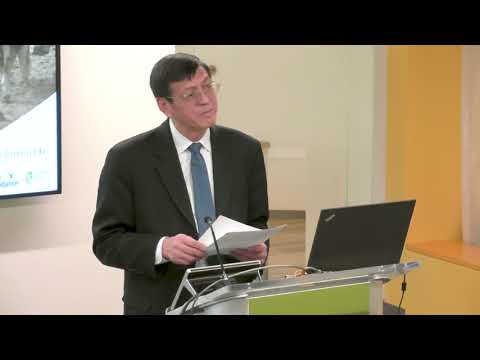
The Future of Livestock: Enhancing sustainability, responsibility and efficiency
Co-Organized by Embassy of the Federal Republic of Germany–Washington, Farm Foundation, and IFPRI
Welcome Introduction Panelists Moderator Closing Remarks Livestock production is facing growing social and environmental demands. Farmers, food producers, consumers, and environmentalists all have different views on addressing these challenges. Starting from a recap of this month’s Global Forum on Food and Agriculture in Germany, expert panelists will look at the critical debates confronting the livestock […]
-
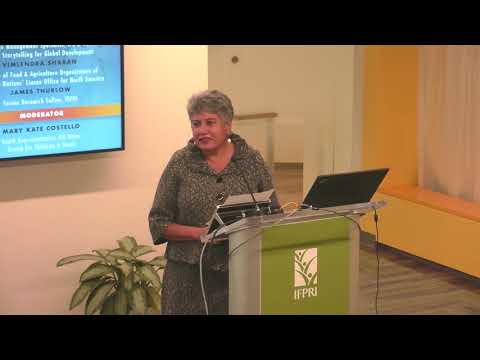
Youth Required: Building Resilient Food Systems for a Sustainable World
Co-Organized by The Hunger Project and IFPRI
Panelists Moderator This youth-led event featured a multigenerational dialogue about the urgent challenges in expanding opportunities in agriculture for today’s youth, with questions put to high-level experts. What are the best practices that will foster youth buy-in to agriculture? How is globalized communication affecting youth goals? Can youth leadership and cross-sectoral partnerships be strengthened to […]
-
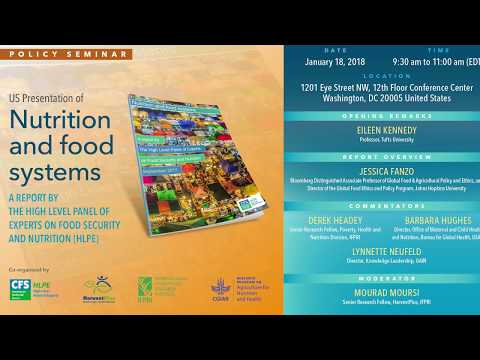
US Presentation of “Nutrition and food systems—A report by The High Level Panel of Experts on Food Security and Nutrition (HLPE)”
Co-Organized by HLPE, HarvestPlus, IFPRI, and A4NH
Opening Remarks Report Overview Commentators Moderator Worldwide, one person in three is malnourished today and one in two could be malnourished by 2030 if nothing is done. While hunger remains a critical concern, overweight and obesity are rapidly increasing all over the world, including in low-income countries. Therefore malnutrition in all its forms – undernutrition, […]
-
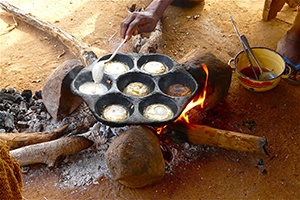
Investing in Research – new evidence showing how a nutrition-sensitive agriculture program improves children’s nutritional status
Co-Organized by IFPRI, HKI, and A4NH
Speakers Panelists Moderator Nutrition-sensitive agriculture programs can improve nutrition outcomes for young children, however documentation of the extent of their effectiveness has been limited. Recent evidence from Burkina Faso published by IFPRI and Helen Keller International (HKI), demonstrated the effectiveness of HKI’s nutrition-sensitive agriculture program for decreasing child anemia, wasting and diarrhea. Although the program […]
-
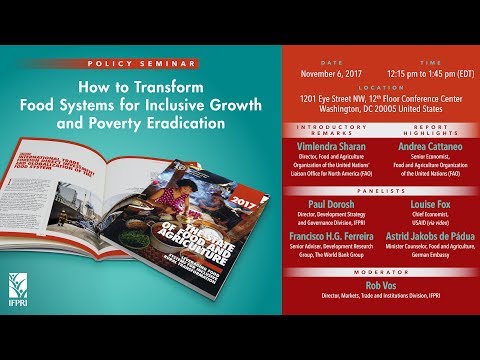
How to transform food systems for inclusive growth and poverty eradication
Introductory Remarks: Report Highlights: Panelists: Moderator: One of the greatest challenges today is to end hunger and poverty while making agriculture and food systems sustainable. The 2017 edition of FAO’s The State of Food and Agriculture (SOFA) presents strategies that can leverage the potential of food systems to become the engine of inclusive economic development […]
-
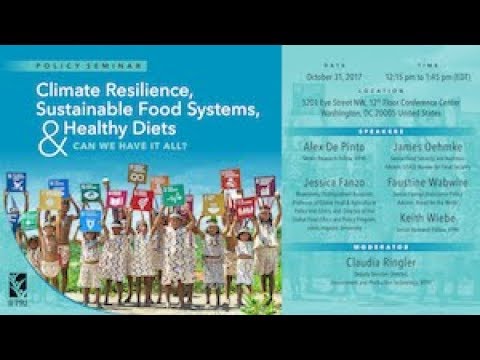
Climate resilience, sustainable food systems, and healthy diets: Can we have it all?
Speakers: Moderator: The upcoming COP23 will focus attention on how to achieve the goals set by the Paris Agreement while also pursuing the Sustainable Development Goals. Meeting these goals will require long-term planning capacity at the country level. New research from IFPRI and partners provides insight into tools and approaches—including system thinking, multi-objective analysis, and […]
-
Moving from relief to resilience: Compact2025 Forum in Malawi
Building resilience is no longer a talk show, it is a matter of action,” urged Right Honourable Dr. Saulos Klaus Chilima, Vice President of the Republic of Malawi, in his keynote address at the Compact2025 Forum in Lilongwe, Malawi on October 31, 2017. The Forum, hosted by the International Food Policy Institute (IFPRI), followed up […]
-
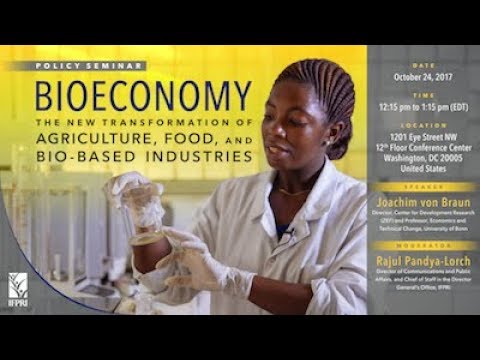
Bioeconomy – the new transformation of agriculture, food, and bio-based industries – implications for emerging economies
Speaker: Moderator: Bioeconomy is the knowledge-based production and utilization of biological resources, innovative biological processes and principles to sustainably provide goods and services across all economic sectors. It employs biomimicry, and utilizes biosciences to transform established economic sectors, such as chemical industries, pharmaceuticals, food, and construction industries into sustainable ones. The bioeconomy has been rapidly […]
-
Building on Progress in Rwanda: Compact2025 Forum
Ending hunger and malnutrition, and building human capacity is “a moral obligation that we need to fulfill as the current generation,” highlighted Dr. Gerardine Mukeshimana, the Honorable Minister of Agriculture and Animal Resources, as she opened the Compact2025 Forum in Kigali, Rwanda on October 23, 2017. Jointly hosted by the International Food Policy Research Institute […]
-

Effects of the United States Farm Bill on Developing Countries
Co-Hosted by IFPRI and American Enterprise Institute (AEI)
Speakers Discussants Moderator The US Congress is currently debating the 2018 farm bill—legislation that will guide farm program spending from 2019 to 2023. Most US farm policies have their roots in the New Deal legislation of the 1930s and began as temporary measures to improve farm incomes. US policy has moved away from direct market […]
-
Compact2025 – Stakeholders Convene to Accelerate Progress in Bangladesh
Success in ending hunger and undernutrition depends on country-owned and country-led strategies and investments. On October 4, 2017, the International Food Policy Research Institute organized two events in Dhaka, Bangladesh, bringing together stakeholders to discuss the critical poverty, hunger, and malnutrition issues that the country faces and chart a path forward to accelerate progress. High-level […]
-
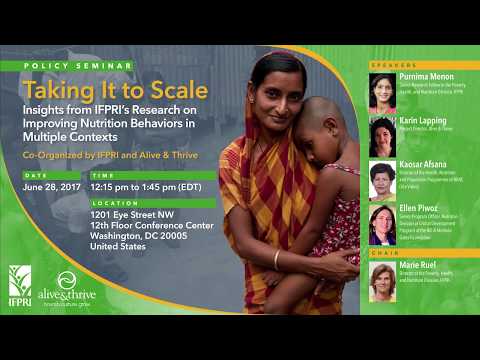
Taking It to Scale: Insights from IFPRI’s Research on Improving Nutrition Behaviors in Multiple Contexts
Co-Organized by IFPRI and Alive & Thrive
This seminar presents the key findings from the set of studies, shares insights on the policy and contextual relevance of the results, and discusses the factors that led to the Alive & Thrive successful long-term research partnership.
-
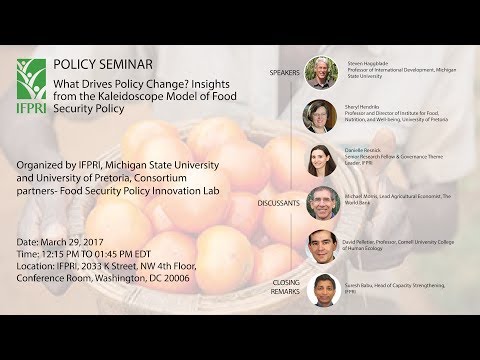
What Drives Policy Change? Insights from the Kaleidoscope Model of Food Security Policy
Organized by IFPRI, Michigan State University and University of Pretoria, Consortium partners- Food Security Policy Innovation Lab
Speakers: Discussants: Closing Remarks: What explains the persistence of socially suboptimal policies over long periods of time? What factors and forces provoke episodes of reform that punctuate long periods of policy inertia? Given the growing need to achieve policy impact with scarce resources, these key questions increasingly preoccupy the international donor and research communities. This […]
-
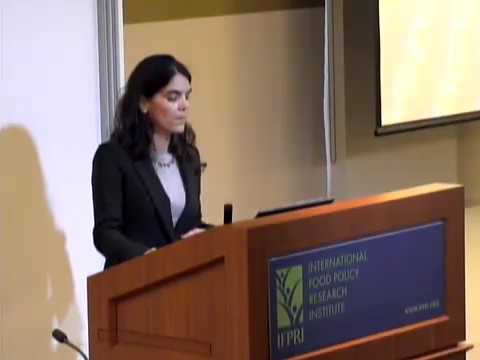
Global food security and the WTO: The role of Mercosur countries
Speakers: Moderator: As regional trade negotiation processes falter, the WTO is returning to center stage as the main body regulating international trade. The countries of the Mercosur trading bloc, including Argentina and Brazil, are among the world’s leading net food exporters and therefore have a key role to play in food security and sustainability. At […]
-
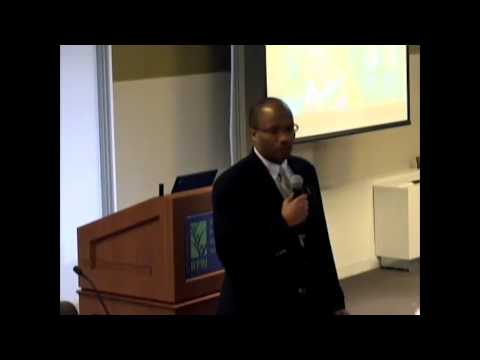
Visioning the future of Food Security
Critical drivers to 2050, key vulnerabilities, and needed policy interventions
Speakers: Discussant: Moderator: Food and nutrition security policies should be made with future eventualities in mind so that proper planning and investments can be made today. There are several approaches to generating “plausible futures.” Using both quantitative and qualitative methods, analysts perform “foresight” exercises to see how various paths to economic growth and development will […]
-
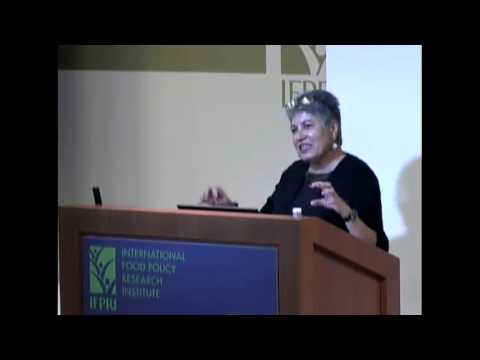
Improving human and environmental health in peri-urban areas
Speaker: Closing Remarks: Today, more than half the world’s population resides in cities. By 2050, city and near-city populations are expected to increase by 66 percent, placing extreme pressure on urban food systems. City policy makers recognize that innovative food policies and interventions are necessary to regulate food production; generate healthy food consumption based on […]
-

Monitoring agricultural incentives: A global perspective
Speakers: Chair Closing Remarks: Agricultural incentives in many countries are still influenced by non-tariff measures such as tariff-rate-quotas, export bans, and export subsidies. So the analyses of global trade reform must be based on measures for as many countries as possible, including both the major agricultural producers and where many people are vulnerable to poverty. […]
-
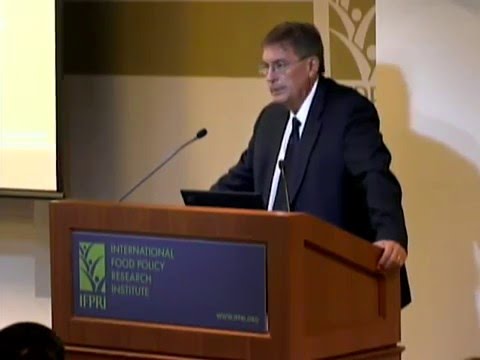
Supplying High-Quality Seeds and Traits to Smallholder Farmers: Policy and Investment Options for Developing-Country Seed Systems
Organized by IFPRI and the CGIAR Research Program on Policies, Institutions, and Markets (PIM)
Speakers: Moderator: Chair: Improved seeds and traits are central to many developing countries’ national strategies for agricultural development and economic growth. Some developing countries have made considerable progress in this area by reforming seed market regulations, encouraging regional regulatory harmonization, reducing state intervention around seed pricing, and encouraging private investment in seed markets. Nevertheless, many […]
-
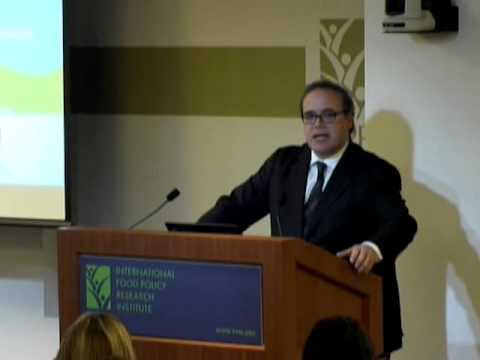
Options for global agricultural trade after Nairobi
Global solutions or national actions?
Speakers: Moderator: In December 2015, at the 10th World Trade Organization (WTO) ministerial conference, 159 WTO members secured the “Nairobi Package” agreement containing important outcomes on the issue of agriculture. At this seminar, presenters will share highlights of the conference and explore: (i) the role of emerging countries in contributing to global food security; (ii) […]
-
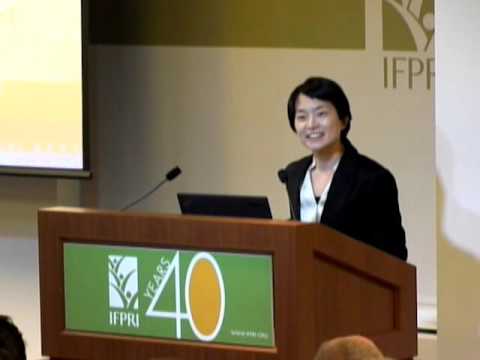
Economics of Land Degradation and Improvement
A Global Assessment for Sustainable Development
With: Joachim von Braun, Director of the Center for Development Research (ZEF), University of Bonn, and Professor for Economic and Technological Change | Rattan Lal, Distinguished University Professor of Soil Science and Director of the Carbon Management and Sequestration Center, The Ohio State University, and Adjunct Professor of University of Iceland | Alisher Mirzabaev, senior researcher at the […]
-
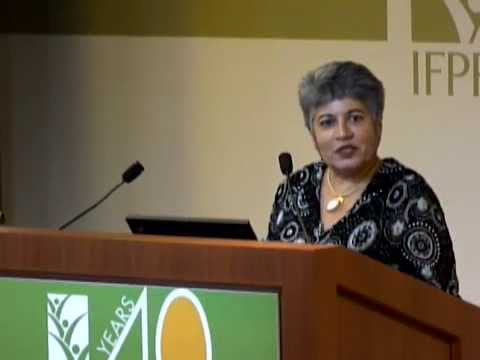
Climate Change & Food Security
Challenges and Options at Global and National Scales
Challenges and options at global and national scales. Video now available from the Nov 10 Policy Seminar.
-
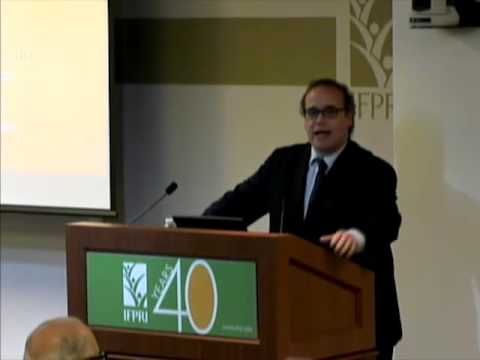
Macroeconomics, Agriculture & Food Security
With: Eugenio Diaz-Bonilla, Visiting Senior Research Fellow, IFPRI | Joe Glauber, Senior Research Fellow, IFPRI | Alejandro Izquierdo, Principal Technical Leader & Economist, Inter-American Development Bank | Maximo Torero, Division Director of the Markets, Trade, and Institutions Division, IFPRI. What do policymakers, policy analysts, and practitioners–working on agricultural issues in developing countries–need to know about macroeconomics to […]
-
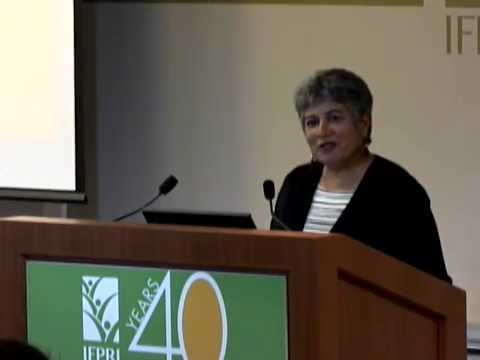
Getting to One Billion
Scaling Up Biofortification
Speakers: Anna Marie Ball, Manager, Africa Regional Partnerships & Strategic Alliances, HarvestPlus | Howarth Bouis, Director, HarvestPlus | Namukolo Covic, Research Coordinator in the Poverty, Health and Nutrition Division, International Food Policy Research Institute | Mahabub Hossain, Advisor to the Executive Director, BRAC & Member of the Global Panel. Biofortfied nutritious food crops are now […]
-
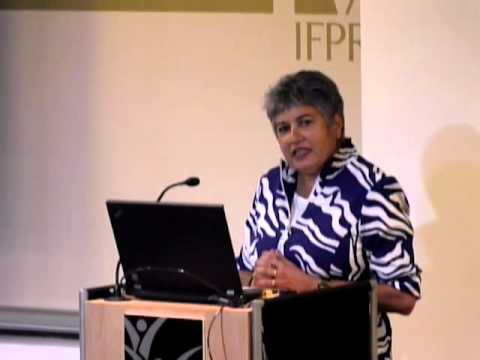
Beijing +20 and Beyond
How Gender Research Is Changing the Landscape of Food Policy
How Gender Research Is Changing the Landscape of Food Policy.
-
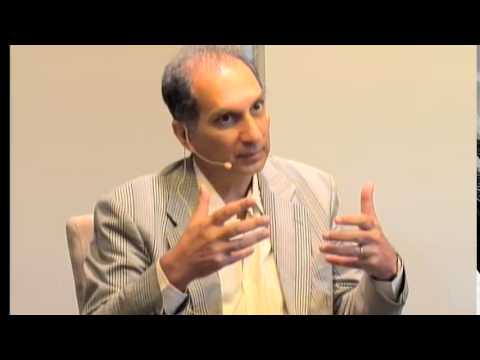
Road to New York: Keeping the SDGs’ Agenda in Focus
By the end of September 2015, world leaders will agree on the Sustainable Development Goals (SDGs) which will anchor the global development agenda for the next 15 years. At the center of the SDGs are the goals to eliminate extreme poverty, hunger, and malnutrition in a sustainable way. Keeping the focus on these key aims […]
-
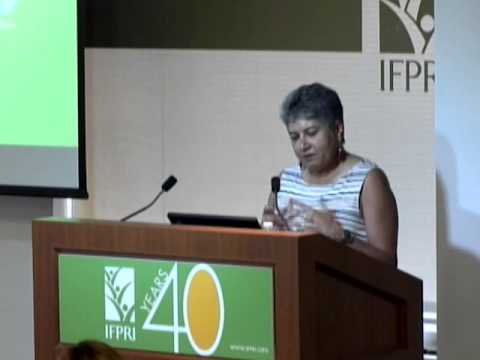
Achieving Food Security in Africa South of the Sahara Through Food Value Chains
Moderator: Rajul Pandya-Lorch, IFPRI | Welcome: Astrid Jakobs de Pádua, Embassy of the Federal Republic of Germany | Lily Munanka, Embassy of the United Republic of Tanzania | Speakers: Khamaldin Mutabazi, Sokoine University of Agriculture SUA in Morogoro, Tanzania | Ephraim Nkonya, IFPRI | Stefan Sieber, Leibniz Centre for Agricultural Landscape Research ZALF This seminar […]
-

It Is Time
Gendered Time Use in Agriculture-Nutrition Pathways
Key findings and policy options – seminar May 7, video now available
-
Why is Ending Hunger So Hard?
Ending hunger is difficult because it is a lengthy process that requires sustained policy attention and public resources at the same time that private markets are the arena for nearly all the decisions that matter. Central to this process is the food system, both as a key element of structural transformation and where many of […]
-

IFPRI Roundtable on Next Harvest II
Biotechnology Capacity in Africa, A Way Forward
IFPRI’s 2014 report “GM Technologies for Africa: A State of Affairs” identified the lack of standardized and uniformly collected biotech data as a main constraint in assessing the overall state of Africa’s agricultural biotechnology capacity and in the ability to draw policy recommendations regarding countries’ strengths and needs. IFPRI designed and implemented Next Harvest II, a John Templeton funded […]
-
Perspectives on Energy, Water, and Agriculture
Expanding access to clean energy in low-income countries is key to development efforts. Taking innovative ideas found in U.S. research institutions and translating and scaling these innovations to meet the demand of developing country partners is essential if we are to make a global difference toward a carbon-neutral world. Identifying means by which clean energy […]
-
Donor Approaches to Political Economy Analysis
What are the Implications for Food Security Policy and Research?
The international community is increasingly focused on political economy to determine the feasibility of pro-poor policies in developing countries. Consequently, more than a dozen donor agencies have developed political economy analysis tools to identify, for example, institutional bottlenecks and barriers to collective action. However, the impact of these tools in shifting donor priorities or influencing […]
-
Social Marketing to Influence Public Behaviors
What is it? Why is it so hard? What makes it easier?
Social marketing is a proven behavior change discipline that first rose to prominence in the early 1970s. It has had a profound impact on influencing public behaviors that improve public health, prevent injuries, protect the environment, and contribute to communities. In this seminar, Nancy Lee will introduce social marketing, explain how it differs from social […]
-
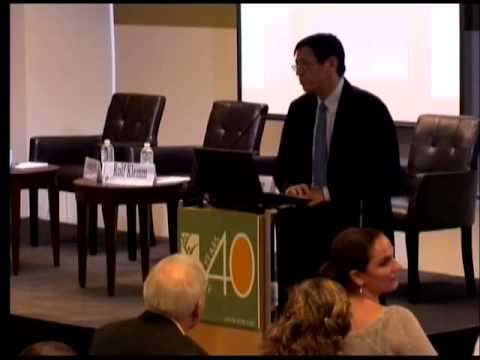
Accelerating Progress to Overcome Malnutrition
Event organized by IFPRI and FAO Malnutrition, in all of its manifestations–undernutrition, micronutrient deficiencies, overnutrition–is placing an intolerable burden on individuals and communities, as well as on the cultural, social, economic, and health fabric of nations. The statistics underscore this burden: 805 million people suffer chronically from hunger and stunting affects 161 million children under […]
-
Innovations in Science and Policy
Transforming the Rural Sector for Improved Food Security
Transforming the Rural Sector for Improved Food Security IFPRI-IRRI Policy Seminar While food price shocks from 2007 onward brought food security back to center stage in global discussions, climate-related challenges affecting major food-producing areas—such as the rice sector in Asia—are likely to keep it there. At the same time, powerful social and economic drivers are […]
-
Building Resilience in the Face of Climate Change and Weather Shocks
As the food system grows more fragile, climate change and increasingly volatile weather are reducing agricultural productivity globally. There is an urgent need for strategies to build resilience for the world’s farmers to adapt to these changing conditions. Building on the resilience themes presented in two recent conferences, the IFPRI 2020 Conference on Building Resilience […]
-
Boserup and Beyond
Mounting Land Pressures & Development Strategies in Africa
Mounting Land Pressures & Development Strategies in Africa Evidence collected in the above titled special issue of the journal Food Policy shows that rising rural population densities and shrinking farm sizes in large parts of Africa are profoundly affecting farming systems as well as the process of economic transformation. These impacts are largely under-appreciated in […]
-
CANCELLED: Tackling Soil Health Problems in Africa South of the Sahara
The policy seminar scheduled for Tuesday, July 22, from 12:15 pm to 1:45 pm at IFPRI has been cancelled. We regret the inconvenience. Human health and soil health are related. Humans get nutrition from food; food gets nutrition from the soil. This linkage is critically important for food security and for the global food system. […]
-

21st Century Agricultural Policies
The 2013 EU CAP and 2014 US Farm Bill
The 2013 EU CAP and 2014 US Farm Bill With the 2013 EU Common Agricultural Policy (CAP) and the US Agricultural Act of 2014, two major actors in world markets with longstanding high levels of farm support have set their assistance programs for agriculture for the first fifth of the 21st century. They have chosen […]
-
-
The Zero Hunger Challenge
Achieving the Right to Food for All Event organized by IFPRI, FAO, and Community for Zero Hunger This panel brings together the unique perspectives of representatives of the United Nations, government and civil society to discuss the Zero Hunger Challenge, a UN-led initiative to end hunger, eliminate child stunting, make all food systems sustainable, eradicate […]
-
Ensuring Food and Nutrition Security in the Post-2015 Agenda
As the deadline for the Millennium Development Goals (MDGs) approaches, policy discussions on the Post-2015 development agenda, including the upcoming Sustainable Development Goals (SDGs), have gained strong momentum. These discussions put sustainable development at the center and give focus to the goal of eradicating extreme poverty. The goal of eliminating hunger and ensuring food and […]
-
Post-2015 Development Agenda
Food Security and Environmental Sustainability Due to the federal government’s closure and IFPRI’s inclement weather policy, we regret that today’s event has been cancelled. Thank you for your understanding. As the deadline for the Millennium Development Goals approaches, policy discussions on the Post-2015 development agenda, including the upcoming Sustainable Development Goals (SDGs), have gained strong […]
-
Beyond Gender Myths
Closing the Knowledge Gap in Agriculture and Food Security There is now growing recognition of the importance of attention to gender for agricultural productivity and food security. However, many “gender myths” persist; myths that either underestimate or overstate the importance of women’s roles and resources. In order to close the gender gap in productivity or […]
-
Aflatoxins: Finding Solutions for Improved Food Safety
Aflatoxins—a naturally occurring carcinogenic byproduct of common fungi on grains and other crops—pose a significant public health risk in many tropical developing countries. It is estimated that 26,000 Africans living south of the Sahara die annually of liver cancer associated with chronic aflatoxin exposure. There are also broader health effects associated with aflatoxins, such as […]
-

Cash, Food, or Vouchers?
Evidence from a Four-Country Experimental Study | IFPRI-WFP Event The use of cash, food, or vouchers as a transfer modality is heavily contested. At this policy seminar, John Hoddinott and Annalisa Conte will present results from a three-year IFPRI-World Food Programme study that assessed the comparative performance of these transfer modalities on household food security […]
-
Investing in Strengthening the Resilience of Smallholder Farmers
2020 Policy Consultation on Building Resilience Lead Event
-
Transforming Agriculture in Africa
The Insiders’ Perspective In recent years, there have been a number of high-profile initiatives to promote agricultural development in Africa. These initiatives attempt to address one of the most pressing development challenges in Africa: increasing farm productivity amidst an expanding population, smaller farm sizes, and increasing levels of soil degradation. In the international development community, […]
-
Food, Forests, and Landscapes
Protecting Ecosytems, Feeding the Future | CIFOR-IFPRI Event The world faces the complex challenge of providing nutritious and affordable food to a rising population expected to reach 9 billion by 2050, without depleting scarce natural resources. In the past, efforts to increase availability of food have led to expanding agriculture, standing in conflict with other […]
-
Policymakers’ Responses to Food Price Crises
Results from a 14-Country Political Economy Study Increasing food price volatility since 2007, which is likely to continue and possibly amplify in the future, presents a major challenge for the world’s policymakers. While much has been written about the nature and causes of food price fluctuations since 2007, little is known about the processes that […]
-
Input Subsidy Programs in Developing Countries
What Works, What Doesn’t, and Why? After having been largely eliminated by structural adjustment programs in the 1980s and 1990s, many African countries have reintroduced large-scale input subsidy programs. The subsidy programs’ benefits, however, are highly contested, and there remains a lack of recent and high-quality research to inform policy discussion and guide research on […]
-
The State of Food & Agriculture 2012
Investing in Agriculture for a Better Future US Launch of The State of Food and Agriculture 2012, hosted by The International Food Policy Research Institute, the UN Food and Agriculture Organization, and the Partnership to Cut Hunger and Poverty in Africa. Quantity or quality? When it comes to investment in agriculture, a growing number of […]
-
Harnessing Agricultural Innovation for Transformative Impact
IFPRI Special Event with Dr. Rajiv Shah, Administrator, USAID You are cordially invited to join us for a special discussion with Dr. Rajiv Shah, Administrator of USAID. Dr. Shah serves as the 16th Administrator of USAID and leads the efforts of more than 8,000 professionals in 80 missions around the world. Before becoming USAID’s Administrator, […]
-
Food Security and Development in the Arab World
In Transition? While the Arab Awakening has brought much change and opportunity, the region remains highly vulnerable to shocks that contribute to food insecurity—one of the triggers of the uprisings. Stability hinges on Arab governments’ ability to accelerate economic growth, create jobs, and reduce poverty; their citizens will be closely watching progress on these indicators—as […]
-
A New Path Forward
Agriculture and Food Security Strategy for South Sudan IFPRI is honored to welcome the H.E. Dr. Betty Achan Ogwaro, Agriculture and Forestry Minister of the world’s newest nation, South Sudan. The young country is eager to transform into a strong economy, and Dr. Ogwaro believes that economic development is contingent on a vibrant agricultural sector. […]
-
2012 Global Hunger Index Launch Event
The Challenge of Hunger: Ensuring Sustainable Food Security Under Land, Water & Energy Stresses The Global Hunger Index is a comprehensive measure of hunger worldwide and by country and region. Although the proportion of hungry people around the world has declined since 1990, global hunger remains at a level characterized as “serious.” Global Hunger Index […]
-
Strategies and Priorities for African Agriculture
Agricultural growth is key to reducing poverty in Africa, south of the Sahara. That is why, in 2003, African heads of state rallied to form the pan-African Comprehensive African Agriculture Development Programme (CAADP), which works for sustained public spending on agriculture-led growth. This unprecedented political and financial commitment in Africa bodes well for the future […]
-
CGIAR: Reflections by the CEO
An update on CGIAR reform: reinvigorating global research on agriculture Abstract The CGIAR has been transformed through a reorganization over the last three years. What has been achieved? What is still left to be done? Securing a food secure future without wrecking the planet is the greatest challenge facing humanity in coming decades. Is the […]
-
Scaling Up in Agriculture, Rural Development, and Nutrition
As governments, donors, and other key actors deepen their commitments to improve food security and reduce poverty, they are increasingly focusing on how successful development interventions can be scaled up, i.e. expanded, replicated, and adapted to new and different contexts, for greater and sustained impact. IFPRI’s 2020 Vision Initiative commissioned a set of 20 policy […]
-
Transformation of Economies in Africa
Africa has recently experienced impressive transformation, including economic growth of about 5-7 percent despite the global economic crisis. However, the opportunities that accompany such transformations have not been fully harnessed and significant challenges remain. Africa’s transformation process differs from other regional transformations in several ways. Many continue to live in rural areas and depend on […]
-
The Role of the Right to Food in Combating Global Hunger
This seminar will examine how legal, institutional, and policy frameworks grounded in the right to food can improve the actions States take to improve food security. The presentation will cover recent developments in Latin America and Sub-Saharan Africa, where a right-to-food movement considers accountability and participation as key to achieving sustainable success in food security […]
-
Sustainable Food Security and Climate Change
Post-Bonn and Pre-Rio During these informal presentations, Bill Hohenstein will report on the outcomes for agriculture at the recently concluded UNFCCC negotiations in Bonn, and David Waskow will talk about progress towards Sustainable Development Goals at Rio. Topics include:
-
Why Poverty Persists
Poverty Dynamics in Asia & Africa Why are some people trapped in chronic poverty, while others are able to escape it? This policy seminar will provide an overview of the major findings and policy recommendations from a recently published book on poverty dynamics in Asia and Africa, and present two country studies (from Bangladesh and […]
-
From Good to Great
Bringing Impact to Scale at the World Food Programme How can the World Food Programme (WFP) better meet the urgent needs of the poorest and most vulnerable while building the capacity of nations and peoples to feed themselves? As the WFP’s new Executive Director, Ertharin Cousin is leading the world’s largest food assistance agency at […]
-
Food Security & the G20
When G20 leaders come together on June 18-19 in Los Cabos, Mexico, food security will once again be at the top of their agenda. At last year’s summit, the G20 Agriculture Ministers took historic steps towards addressing food price volatility. This year, it is vital to take last year’s achievements to the next level. This […]
-

Launch of IFPRI’s First Global Food Policy Report
In 2011, a variety of ongoing challenges affected global food security, including food price volatility, extreme weather shocks, famine, and conflicts. Despite a number of positive developments in 2011, the global food system’s inability to adequately respond to these challenges highlights a need to exploit the links between agriculture and other sectors, in combination with […]
-
Innovations in Measuring Women’s Empowerment
The Women’s Empowerment in Agriculture Index Women play a critical role in agriculture in developing countries, but they face major constraints that prevent them from contributing more to agricultural growth and poverty reduction. In order to remove the obstacles related to income, time, and lack of control over resources from women’s paths, it’s important to […]
-
Women’s Empowerment in Agriculture Index
USAID/FAO/IFPRI Side event, 56th Session of the UN Commission on the Status of Women Cohosts On Tuesday, February 28th, the “Women’s Empowerment in Agriculture Index” (WEAI), will be launched at the United Nations Commission on the Status of Women. The WEAI is the first ever measure to directly capture women’s empowerment and inclusion levels in […]
-
Two Food Price Crises in Three Years
What’s Going On? What Lessons Have We Learned? International food prices began to rise sharply in the first quarter of 2011, resulting in a second food price crisis in three years. Rising food inflation in many developing countries and increasing food price volatility have revived concerns about the long-term food security of poor people. In […]
-
Agricultural Support in Doha and Beyond
Experience to Date and Assessment A key pillar of the WTO Agreement on Agriculture limits trade-distorting agricultural domestic support. Commitments for certain countries are tightened and extended under proposed rules in the stalled Doha Round negotiations. The Doha constraints are more stringent, but notified support of major economies such as the United States and the […]
-
Leveraging Agriculture to Improve Human Nutrition
Prospects for Golden Rice PLEASE NOTE CHANGES TO PROGRAM Dr. Ingo Potrykus and Dr. S. R. Rao regret that they will be unable to join the seminar due to extenuating circumstances. The revised program is given in the abstract below. Abstract Following a decade of research, professors Ingo Potrykus and Peter Beyer invented Golden Rice […]
-
African Agricultural Research and Development
Progress, Challenges, Opportunities Abstract Following a period of stagnation in the 1990s, total public agricultural research and development (R&D) spending and capacity levels in Sub-Saharan Africa have increased in recent years. However, the lion’s share of investment growth has occurred in just a handful of countries; in many other countries, investment levels have stagnated or […]
-
Food Security, Farming, and Climate Change to 2050
Scenarios, Results, Policy Options Feeding a growing world population, likely to reach 9 billion by 2050, poses an unprecedented challenge to human ingenuity. Most of these additional people will be born in developing countries, where the population is projected to reach nearly 8 billion by 2050. As the incomes of these people rise, they will […]
-
Nourishing Plants and People
New Insights on How Fertilizers Affect Agriculture, Nutrition, and Health
Abstract Millions of farmers use fertilizers to increase agricultural production and productivity and thereby improve their livelihoods. But fertilizers have impacts beyond agricultural production. If they are not managed carefully, fertilizers can damage soil and groundwater and compromise people’s health. In this seminar, Luc Maene, Tom Bruulsema, and Ross Welch talk about how fertilizer use […]
-
Understanding the Interactions between Agriculture and Health
Agricultural policy and practice affect human health, which in turn impacts agricultural productivity and output. Agriculture contributes to better health by improving the quality and quantity of food available and increasing income. Effective health policies in turn can support agriculture by protecting the labor force from lost time and income due to illness, chronic disability, […]
-
2010 Global Hunger Index: Book Release
Hunger and malnutrition severely impede global progress: undernutrition during the first 1,000 days of life (from conception to age two) is not only one of the leading contributors of global hunger, but also has largely irreversible consequences for health, productivity, and economic performance. The 5th annual Global Hunger Index, published by the International Food Policy […]
-
Communications and Development
Making Knowledge Available to Policy and Practice
What information and knowledge are used in the international development sector? How is this information received, handled, and expressed? What possibilities for change arise in the way we understand our work and communicate with others if we make the best use of informational developments? This seminar will explore the challenges faced by development organizations trying […]
-
The Concept of Inclusive Growth
and its Policy Relevance for Asia and the Pacific
In her lecture, Dr. Schaefer-Preuss, Vice President of Knowledge Management and Sustainable Development at the Asian Development Bank, will examine the concept of inclusive growth and its policy relevance to Asia and the Pacific. She will discuss why more and more countries in the region are embracing inclusive growth, what inclusive growth is, and what […]
-
U.S. Foreign Policy and Rural Women
A Gender Integration Approach to Diplomacy and Development
The U.S. Department of State and USAID have made gender equality a priority in their development and diplomacy efforts. As a flagship initiative, Feed the Future is an example of how this priority is being operationalized through policies and investments targeting rural women. This seminar will provide an overview of the Obama administration’s new concerted […]
-
Successes in African Agriculture
There is a new consensus today that investing in African agriculture is fundamental for reducing poverty and food insecurity on the continent. But how can this be done without repeating many of the mistakes of the past that led to widespread disappointment and pessimism about African agriculture, and a precipitous decline in donor support during […]
-
Economics Beyond Markets: Choice Experiments In Developing Countries
In the past few decades, the choice experiment method has become popular among the public and private sectors in developed countries as a guide for efficient and effective decision-making. In the public sector, this tool’s popularity can be attributed to its ability to capture the marginal economic values—costs and benefits—of improvements in, or provision of, […]
-
The Dragon’s Gift: the Real Story of China in Africa
Is China a rogue donor? Media reports about huge aid packages, land-grabbing, support for pariah regimes, regiments of Chinese labor, and the ruthless exploitation of workers and natural resources in some of the poorest countries in the world have sparked fierce debates. China’s tradition of secrecy fuels rumors and speculation, making it difficult to gauge […]
-
Alleviating the worst of poverty with water, resilience and innovation
The CGIAR Challenge Program on Water and Food (CPWF) aims to increase the resilience of social and ecological systems through better water management for food production. In its second research phase, from 2009-2013, it focuses on key water-for-food development challenges within large river basins of key importance for smallholder water and food security. In this […]
-
Agricultural Price Distortions, Inequality, and Poverty
Abstract The prices of farm products, namely food products, are crucial determinants of the extent of poverty and inequality in the world. The vast majority of the world’s poorest households considerably depend on farming for income while spending a large proportion of that limited income on food. For generations, food prices have been heavily distorted […]
-
The New Politics of Food & Farming
Abstract The politics of food and agriculture are changing fast in the 21st Century. Farm lobbies remain as dominant as ever over policy within their own sectors in OECD countries, but in the realm of culture, the sophisticated elite that claim to speak for food safety, food quality, social justice, and the environment have put […]
-

Creating Shared Value: The New Concept of Corporate Social Responsibility
Abstract In the context of the most recent economic downturn, the role of business in society has come under increasing scrutiny. Moreover, models of corporate engagement that are more philanthropically oriented have been subject to mounting pressure. This Policy Seminar proposes a new approach, which replaces the more traditional descriptions of “corporate social responsibility” with […]
-
Inequalities and Conflict
Choosing Policies for Peace
Violent conflict in multiethnic societies in the developing world is a pre-eminent problem of the 21st century. Horizontal inequalities among religious or ethnic groups, in political, social, economic or cultural dimensions, are an important catalyst of such conflicts. This seminar will identify policies to reduce such inequalities and discuss how to routinely incorporate them into […]
-

Better Rural Services through Decentralization?
What are the Policy Options?
A policy panel discussion in conjunction with the IFPRI-University of Kiel research workshop, “Inside the black box: The political economy of local governments and their role in rural development” Abstract Decentralization, by “bringing government closer to the people,” has a unique potential to improve the provision of public services, such as water, health, education, and […]
-

Innovations for Insuring Poor People
Risk and poverty are inextricably linked. Poor people often live in environments characterized by high weather and disease risk, and it is poor households that have the fewest tools to deal with drought, floods, and disease when they occur. Breaking the link between risk and poverty by insuring poor people both lessens the affliction of […]
-

Copenhagen and Beyond
Three Perspectives on Agriculture and Climate Change
The climate change negotiations in Copenhagen: A. failed miserably, B. were rescued at the last minute, or C. resulted in a promising set of new initiatives that will ultimately lead to a binding international treaty. William Hohenstein (USDA), David Waskow (Oxfam), and Gerald Nelson (IFPRI) will provide perspectives on which of these three outcomes ultimately […]
-
The Financial and Economic Crash of 2008 and its Impact on Food and Agriculture in Developing Countries
The financial and economic crash of 2008 was immediately succeeded by a global recession that is leading to significant paradigm shifts in the global policy agenda. It has slowed, and in some cases reversed, the progress in output growth, trade, foreign investments, and poverty and hunger reduction. Moreover, the financial crisis emerged on the shoulders […]
-

Millions Fed: Proven Successes in Agricultural Development
Learning from successes in agricultural development is now more urgent than ever. Progress in feeding the world’s billions has slowed, while the challenge of feeding its future millions remains enormous and is subject to new uncertainties in the global food and agricultural systems. In late 2008, IFPRI, with support from The Bill & Melinda Gates […]
-
The Other Green Revolution
Farmer-led Change in the Sahel 1980-2010
A successful example of achieving food security while adapting to climate change, catalyzed by farmers and scaled-up by effective aid. After the devastating droughts of the 1970s and 1980s, African farmers in the Sahel region mobilized to reclaim their land from the encroaching desert. 30 years later, their work has secured 13 million acres of […]
-

Agricultural Adaptation to Climate Change in the Developing World: What will it Cost?
Abstract Agriculture’s vulnerability to climate change will put millions of people in developing countries at greater risk of poverty, hunger, and malnutrition. A new report from the International Food Policy Research Institute, Climate change: Impact on agriculture and costs of adaptation, provides projections for decreased crop yields, higher food prices, and increased child malnutrition by […]
-

Regional Inequality and Harmonious Development in China
China’s spectacular achievements in economic growth and poverty reduction have been accompanied by growing inequality, which not only jeopardizes its equitable development goals but also threatens its social compact and thus, the political basis for future economic growth. Chinese policymakers and scholars are questioning this growth pattern and have launched reviews and policy initiatives to […]
-

School Feeding Programs: Evidence and Policy Lessons
School feeding programs have recently received renewed attention as a policy instrument for achieving the Millennium Development Goals of universal primary education and hunger reduction in developing countries. However, there is still debate among governments and donors about the impact of school feeding programs and whether they are cost-effective. New evidence from studies conducted by […]
-

Pakistan: A Crisis within the Crises
Internally Displaced Persons of the Swat and Buner Districts
n late 2008 there were an estimated 24 million Internally Displaced Persons spread across fifty countries around the world. Within the span of just two months in 2009, an additional 3 million persons were internally displaced from the Swat and Buner districts in Pakistan: a collateral damage of the global war on terror. Displaced from […]
-
Reflections on The Global Food Crisis
How Did It Happen? How Has It Hurt? And How Can We Prevent The Next One?
This seminar consists of three presentations of new work on the global food crisis. Headey and Fan present an update of their earlier review of the causes and consequences of the food crisis, with new data and analysis of sources of demand growth, the impacts of export restrictions and panic purchases, supply response, and price […]
-
Climate Change — Adaptation and Poverty
Climate change threatens poor people, especially farmers, in developing countries. They will need help to adapt to climate change, a daunting task as droughts and floods stress agricultural systems, water sources become more variable and uncertain, and competition over natural resources accelerates. And if agricultural interests, particularly small farmer interests, are not properly included in […]
-
Strengthening Social Entrepreneurship
An Innovative Approach to the Teaching of Food Policy Analysis
“The Social Entrepreneurship Approach” developed by Per Pinstrup-Andersen at Cornell University in collaboration with IFPRI, Copenhagen University and Wageningen University, aims to instill in the students a social entrepreneurship mindset and to strengthen their analytical capacity and judgment on the basis of verifiable evidence. It brings into the classroom real-life policy case studies for discussion […]
-
The Beauty and the Beast
Unveiling the Beauty of Statistics for a Fact-Based World View
There are no longer two types of countries in the world. The old division into industrialized and developing countries has been replaced by 192 countries on a continuum of socio-economic development. Many Asian countries are now improving twice as fast as Europe ever did. A new gap may form between 5 billion people moving towards […]
-
Overcoming Infrastructure Challenges to Africa’s Rural Development
Chair: Shenggen Fan, IFPRI Infrastructure in Africa is currently very limited in many countries and sectors. Though providing adequate levels of infrastructure can be a key catalyst in enhancing the growth and development of the continent, it is prohibitively expensive for many governments in the region. However, it would require comparatively modest global investment. This […]
-
Securing a Place for Agriculture at the International Climate Change Negotiations
Including agriculture in the international climate change negotiations leading up to the meeting of the 15th Conference of Parties (COP-15) of the UN Framework Convention on Climate Change (UNFCCC) in Copenhagen in December 2009 is essential if fundamental mitigation and adaptation goals are to be met. Agriculture, together with land use change and forestry, is […]
-

Fifty Years of Distortion in World Food Markets
Three quarters of the world’s poor are farmers in developing countries. Their earnings from farming have been depressed by a pro-urban bias in own-country policies as well as by governments of richer countries favoring their farmers with import barriers and subsidies. Both sets of policies worsened from the 1960s to the mid-1980s, reducing national and […]
-

Property Rights and Productivity
Toward an integrated agenda on legal empowerment of the poor
Property rights, whether individual, collective or customary, have the potential to significantly increase productivity and thus can have impact on food security and prices. However the linkages are complex and the potential does not automatically translate into reality. The Commission on Legal Empowerment of the Poor made property rights one of the four fundamental pillars […]
-
The Gates Foundation’s Agricultural Policy Portfolio
he majority of the world’s poor people depend on agricultural production to sustain their livelihoods and those of their children. The Bill & Melinda Gates Foundation is one of the leading private-sector philanthropic organizations supporting agricultural development. It is actively working to put an end to the cycles of poverty and hunger by promoting the […]
-
The Political Economy of Agricultural Policy Reform in India
The Case of Fertilizer Supply and Electricity Supply for Groundwater Irrigation
The seminar will analyze the political economy of two fields of agricultural policy in India: fertilizer supply and electricity supply for groundwater irrigation. Subsidizing fertilizer and electricity supply has been an important component of the policy interventions that launched the Green Revolution in India. The subsidies for these two inputs have become subject to increasing […]
-

Taking Charge of Development Through Locally Integrated Governance
The Case of the Rwenzori Region of Uganda
This presentation features an innovative initiative to improve governance for agricultural and allied development. The initiative, which is currently being piloted in the Rwenzori Region of Western Uganda, combines a set of coordinated local civil society interventions with best global corporate practices in improving development governance. The “closed-loop” governance mechanisms of the initiative link grassroots […]
-

Nanotechnology, Food, Agriculture and Development
Imagine eating foods without absorbing harmful allergens and cholesterol into your body. Imagine farmlands in developing countries with environmental sensors that automatically release pesticides and fertilizers only when absolutely necessary. Imagine going to your nearest market and being able to modify the foods you purchase to suit your nutritional needs and tastes. The first two […]
-

Helping Women Respond to the Global Food Crisis
What We Know and What We Still Need to Know
Ruth Meinzen-Dick, a senior research fellow in IFPRI’s Environment and Production Technology Division and chair of IFPRI’s Gender Task Force, launched the seminar by noting that gender analysis has been largely absent from discussions of the current food price crisis. Yet more than 15 years of research on gender and intrahousehold resource allocation suggests not […]
-
Rural Roads and Local Market Development
Impact Evaluation Approaches, Findings from Vietnam, and Policy Issues
A brief review of different methods for evaluating the impacts of rural road improvements will be followed by an assessment of the impacts of rural road rehabilitation on market development in rural Vietnam. The presentation will focus on the different kinds of impacts and the geographic, community, and household factors that explain them. A key […]
-

High Food Prices
The What, Who and How of Proposed Policy Actions
Joachim von Braun, director general of IFPRI, launched the policy seminar by stating that both supply and demand factors are contributing to the current food price crisis. This crisis comes at a time when the world’s income distribution is more unequal than ever, and it compromises progress toward achieving the poverty and hunger Millennium Development […]
-

Taking Action for the World’s Poor and Hungry People
2020 Seminar Series: Action for the World’s Poorest and Hungry
Despite much progress reducing poverty worldwide, a substantial number of the world’s poorest people are being left behind. New IFPRI research finds that 162 million of the world’s poorest people — the “ultra poor” — survive on less than 50 cents a day. They have benefited the least from substantial reductions in poverty around the […]
-

The Urbanization of Global Poverty: New Estimates
2020 Seminar Series: Action for the World’s Poorest and Hungry
One-quarter of the world’s consumption poor live in urban areas and that the proportion has been rising over time. By fostering economic growth, urbanization helped reduce absolute poverty in the aggregate but did little for urban poverty. Over 1993-2002, the count of the “$1 a day” poor fell by 150 million in rural areas but […]
-

Action for the World’s Most Vulnerable: Reaching the Poor During and After Conflict
2020 Seminar Series: Action for the World’s Poorest and Hungry
A third of those living in absolute poverty in developing countries live in countries defined as “difficult environments” due to conflict, or state collapse. What action can be taken for the poor when institutions are absent, much of a generation of implementers is missing, and security cannot be guaranteed? And by what means can action […]
-

Indigenous Peoples and Economic Opportunities in Latin America
2020 Seminar Series: Action for the World’s Poorest and Hungry
Despite the significant progress Latin America has made in reducing poverty for millions of its poorest citizens, abject poverty persists for more than 80 percent of its indigenous peoples. In this seminar, Emmanuel Skoufias will present findings from a new report (written with Harry Patrinos): “Economic Opportunities for Indigenous Peoples in Latin America.” The report […]
-

Social Protection to Overcome Poverty Traps and Aid Traps
2020 Seminar Series: Action for the World’s Poorest and Hungry
A growing proportion of development assistance is being devoted to relief efforts. This signals a worrisome pattern in which increasingly large numbers of vulnerable people have become trapped at low living standards from which they have difficulty escaping. There are potentially large returns to social protection policies that develop safety nets below the vulnerable to […]
-

Why Don’t “The Poor” Have A Louder Voice When They Are Many?
2020 Seminar Series: Action for the World’s Poorest and Hungry
A number of reasons have been used to explain why the poor do not have a louder voice in democracies where they form the majority or a large part of the population. Low levels of political activism, caste divisions, tribal frictions, regional differences are some of the reasons often given. Results from a new set […]
-

Policy Responses to the Spatial Concentration of the Poorest in Lagging Regions
2020 Seminar Series: Action for the World’s Poorest and Hungry
The spatial concentration of the poorest in regions within countries is a persistent and increasing feature of income inequality in many countries. High and rising spatial inequalities pose a significant development challenge. What types of policies effectively address these inequalities? Should we invest more in the places where the poor concentrate, or in the places […]
-
Bioenergy and Agriculture
2020 Vision Panel Discussion
Bioenergy is the subject of increasing attention around the world. It appears to offer hope for environment-friendly energy that would also be a boon to the world’s farmers. Can bioenergy fulfill the promise claimed by its proponents? Can it become an environmentally sustainable, economically viable, pro-poor source of energy? What challenges will meeting these goals […]



